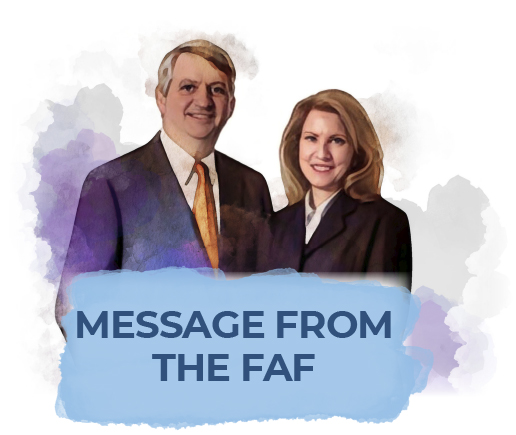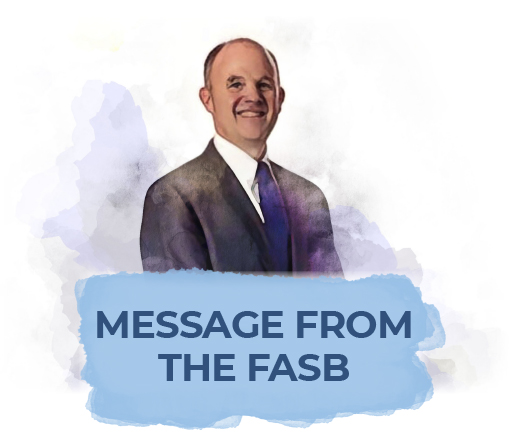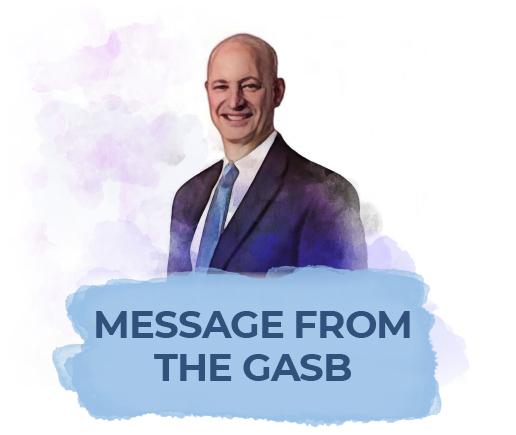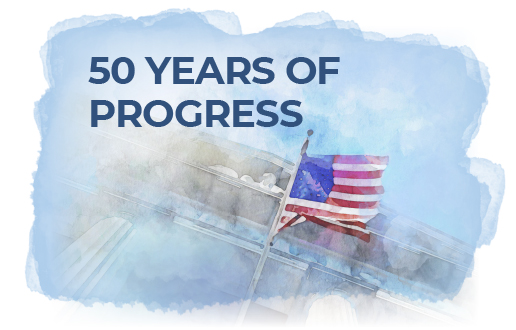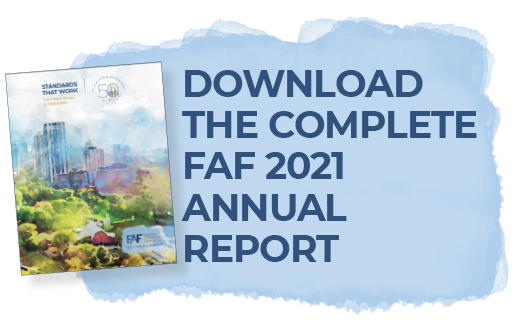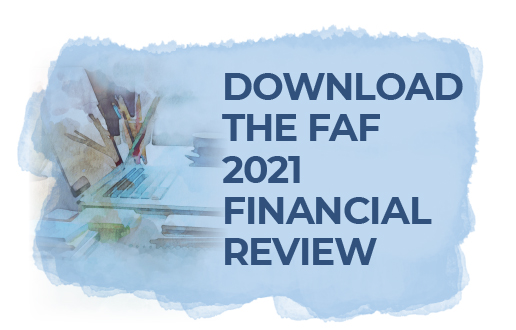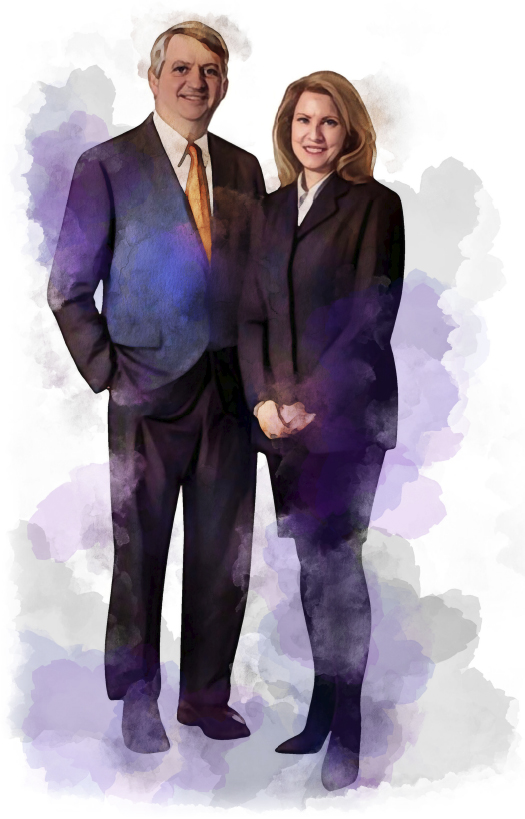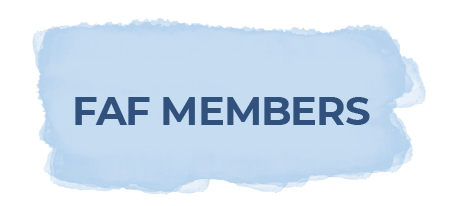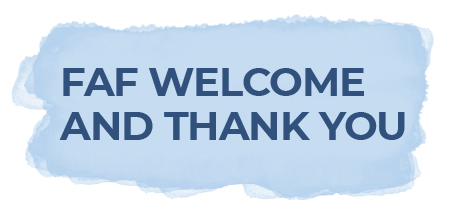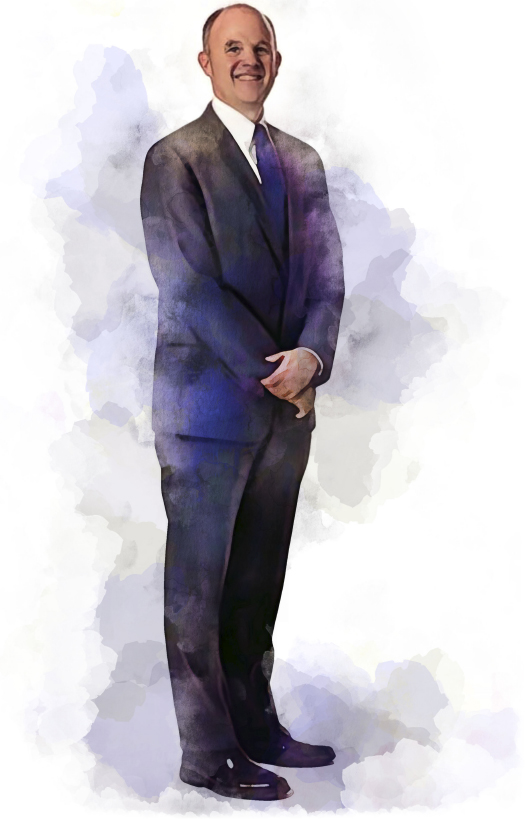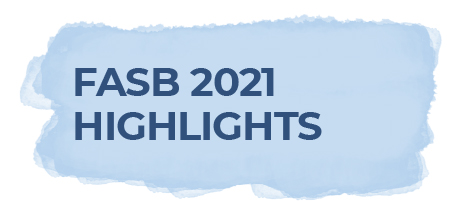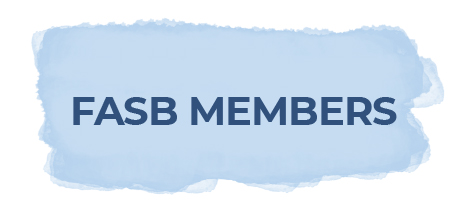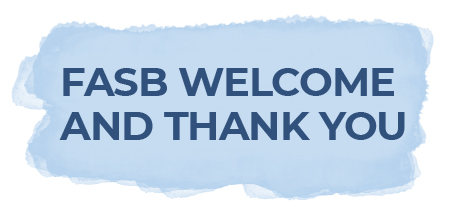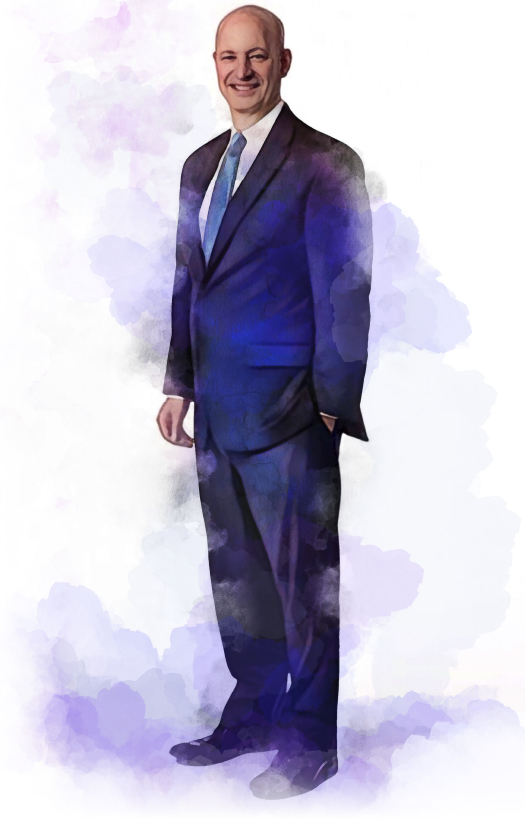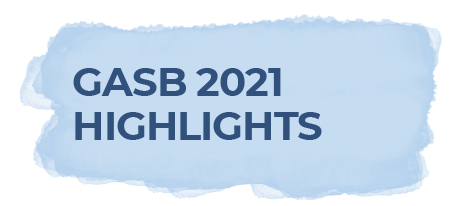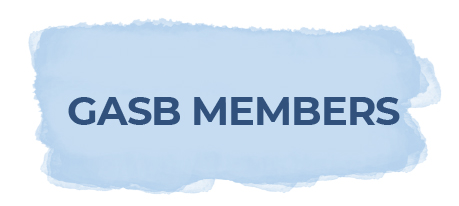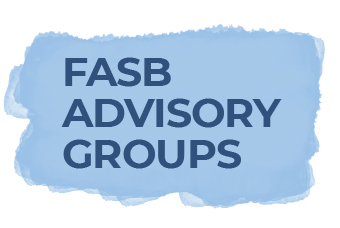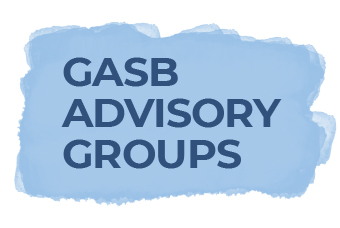Our Mission
Our mission is, through governance and oversight, to ensure that the Financial Accounting Standards Board and the Governmental Accounting Standards Board fulfill their respective missions that are focused on establishing and improving high-quality financial accounting and reporting standards that provide information useful to investors and other users of financial reports, and improving all stakeholders’ understanding of those standards and preparers’ ability to implement them effectively.
- The FASB and the GASB (the Boards) set standards through a process that is robust, comprehensive, and inclusive.
- The FAF Board of Trustees provides oversight and promotes an independent and effective standard-setting process.
- The FAF management provides strategic counsel and services that support the work of the standard-setting Boards and Board of Trustees.
The FASB establishes financial accounting and reporting standards for public and private companies and not-for-profit organizations.
The GASB establishes financial accounting and reporting standards for U.S. state and local governments.
The FAF is the independent, private-sector, not-for-profit organization responsible for the oversight, administration, financing, and appointment of the FASB and the GASB.
www.accountingfoundation.org
401 Merritt 7 P.O. Box 5116
Norwalk, CT 06856-5116
Message from the FAF Chair and FAF Executive Director
In 1972, a seven-person group was formed to study the establishment of accounting principles in the United States and to make recommendations for improving that process. At the time, corporate financial reporting practices and a part-time board closely tied to the accounting profession that set financial accounting standards were deemed inadequate to meet evolving investor needs. The Wheat committee, named for its chairman, former SEC Commissioner Francis M. Wheat, concluded there was an urgent need to establish a new and more independent organization to lead financial accounting standard setting in the United States. The first step recommended by the committee was the creation of the Financial Accounting Foundation (FAF).
Under the structure proposed by the Wheat study, the FAF’s initial task, completed in 1973, was to establish the Financial Accounting Standards Board (FASB), a full-time body to create and improve financial accounting standards that provide useful information to investors and others who rely on accurate financial information. The success of FASB’s work and its robust, inclusive standard-setting process led to the creation in 1984 of a companion Board, the Governmental Accounting Standards Board (GASB), to establish accounting standards for state and local governments. Under FAF oversight, the FASB and GASB produce and continue to refine financial accounting standards that serve as a model for the global community.
For 50 years, this structure—expert Boards operating independently, representing diverse perspectives, appointed and overseen by the Financial Accounting Foundation—has served investors and other users of financial statements well. Through its oversight of the standard-setting process and its own outreach, our Board of Trustees seeks to ensure that the FASB and GASB engage continuously with diverse stakeholder groups. Feedback from these groups is at the heart of the standard-setting process, informing the Boards’ decision making from the outset of a new project through implementation of new standards and beyond. This open, transparent process underpins the strength of Generally Accepted Accounting Principles, or GAAP.
The FAF Trustees understand how important it is to safeguard the integrity of the independent standard-setting process, and to provide the staff and Boards with the tools they need to continue this vital work. Our multiyear technology investments proved essential during the pandemic. They not only enabled staff to continue to meet the needs of our stakeholders while working 100% remotely, but also improved the ability of the Boards to draft and publish standards more efficiently. Additionally, we continue to explore new ways for stakeholders to remain connected and provide feedback through multiple communications channels.
We spent much of the past year engaged in a strategic planning process led by FAF Vice Chair Mary Barth. That process has included in-depth interactions with stakeholders to help us shape priorities that will guide our organization for the next several years. The draft strategic plan was released for public comment in the spring of 2022, and we expect to complete and publish the final document later this year.
We also completed the second year of our initial three-year Diversity, Equity, and Inclusion (DEI) plan for our organization. During the year, we expanded DEI training for our employees, increased our outside partnerships with DEI-focused organizations, and increased the percentage of our hiring slates that included underrepresented minority candidates. We still have much work to do in this area, and we will continue our efforts in 2022.
We bade farewell in December to the FAF Trustees whose terms ended last year: Susan J. Carter, T. Eloise Foster, and Anthony J. Dowd. We also welcomed our new Trustees: Manju Ganeriwala, Edward J. Goldthorpe, W. Bryan Lewis, and Diane C. Nordin. We are grateful to all these leaders for their service and for being part of what is now a 50-year tradition of our important mission.
The members of the Wheat committee understood two things well: the best financial accounting standards emerge from a process that is inclusive and transparent yet independent, and those who set the standards will face near-constant pressure to tailor those standards to serve particular objectives or favor one interest or another. Their recommended model established the FAF as the independent board with the responsibility to appoint the standard setters and to hold them accountable, while protecting the integrity of the process from undue influence. The result is a body of work that has benefited investors, other stakeholders, and the public interest. While we are humbled by our responsibility and are aware that we must continuously strive to prove worthy of it, we are also proud to carry this legacy forward.
Sincerely,

Kathleen L. Casey, Chair

John W. Auchincloss, Executive Director
Message from the
FASB Chair
The FASB has worked over the past 49 years to continually earn our independence by engaging in a robust, inclusive process that built the comprehensive body of GAAP we have today. That extensive body of work means there are few financial reporting topics that haven’t already been addressed in GAAP. While there will always be a need to improve and update that guidance, it’s also the right time to ask, “Where do we go from here?”
While we, as the standard setter, ultimately decide what to work on, we perform broad outreach with our stakeholders to help identify and prioritize what’s on our agenda. As part of our agenda consultation project in 2021, we did just that.
During the first half of the year, FASB members and staff met with 200+ stakeholders—more than 70 of them investors or other financial statement users, including all our advisory groups—to hear their views on what the FASB should take on next. We summarized what we learned in our Invitation to Comment (ITC), which gave all stakeholders the opportunity to weigh in on these views or any others they may have. The response has been tremendous.
Since late 2021, the FASB has been actively addressing that input and prioritizing areas of significant investor feedback. To date, we’ve incorporated that feedback into current technical agenda projects on disaggregation of income statement expenses and targeted improvements to income tax disclosures.
I also made changes to the FASB’s research agenda, adding projects on topics identified through the agenda consultation process. They included projects on digital assets, intangibles, government grants, and accounting for financial instruments with environmental, social, and governance (ESG)-linked features and regulatory credits. We are in the process of bringing the results of that research to the Board to help determine if there’s an achievable path to standard setting on these issues and if they should be added to our technical agenda. We also are continuing to explore input we have received on other topics as part of the agenda outreach process.
To make room for these potential new projects, in 2021 we continued to work through existing projects on the technical agenda. We finalized nine new standards and published six proposed standards for public comment, including our eagerly awaited proposal to help investors and other allocators of capital better consider the effect of supplier finance programs on a buyer’s working capital, liquidity, and cash flows, which we expect to finalize in the first half of 2022. Additionally, we issued two new chapters of our Conceptual Framework on financial statement elements and presentation.
In 2021, we continued to improve standards through our post-implementation review (PIR) process. That process resulted in new guidance, including a standard on recognizing and measuring contract assets and contract liabilities in a business combination to help investors and other financial statement users better understand the financial impact of these acquisitions. We also improved discount rate guidance for lessees that are not public business entities—including private companies, not-for-profit organizations, and employee benefit plans. And we took what we learned from our May 2021 credit losses roundtable and other stakeholder outreach to take fresh looks at the accounting for acquired financial assets and the troubled debt restructuring expected loss model.
While our Board members bring different backgrounds and approaches to our work, we are united by one mission: to improve accounting and financial reporting standards so that they provide investors and other allocators of capital with information that helps them make decisions. Investors don’t all speak with one voice, so we conduct extensive, proactive outreach with a wide range of financial statement users.
Our first FASB Investor Outreach Report describes how we did that over the year ended June 30, 2021. The report highlights how we engage investors in the standard-setting process and incorporate their diverse input to provide information that will help “reasonable investors” make better-informed decisions. For example, the FASB staff had more than 430 investor interactions over the year—even as many stakeholders were still dealing with the effects of the pandemic. Substantially all those interactions were the result of FASB-initiated outreach aimed at soliciting a wide range of investor perspectives.
As I write this in early 2022, our colleagues at the one-year older Financial Accounting Foundation are celebrating the Foundation’s 50th anniversary. We congratulate and thank the Foundation’s Trustees and staff for their commitment to safeguard and support the independent standard-setting environment that enables the FASB to do our best work.
I want to thank my colleagues on the Board and staff for their contributions to what has been an extremely productive and exciting year. I also wish to thank all our stakeholders, past and present, whose input makes our work possible and challenges us to develop the best standards.
Sincerely,

Richard R. Jones, Chair
2021 FASB HIGHLIGHTS
Key Standards Issued in 2021
- Reference Rate Reform (Topic 848): Scope
- Franchisors—Revenue from Contracts with Customers (Subtopic 952-606): Practical Expedient
- Intangibles—Goodwill and Other (Topic 350): Accounting Alternative for Evaluating Triggering Events
- Earnings Per Share (Topic 260), Debt—Modifications and Extinguishments (Subtopic 470-50), Compensation—Stock Compensation (Topic 718), and Derivatives and Hedging—Contracts in Entity’s Own Equity (Subtopic 815-40): Issuer’s Accounting for Certain Modifications or Exchanges of Freestanding Equity-Classified Written Call Options (a consensus of the FASB Emerging Issues Task Force)
- Leases (Topic 842): Lessors—Certain Leases with Variable Lease Payments
- Compensation—Stock Compensation (Topic 718): Determining the Current Price of an Underlying Share for Equity-Classified Share-Based Awards (a consensus of the Private Company Council)
- Business Combinations (Topic 805): Accounting for Contract Assets and Contract Liabilities from Contracts with Customers
- Leases (Topic 842): Discount Rate for Lessees That Are Not Public Business Entities
- Government Assistance (Topic 832): Disclosures by Business Entities about Government Assistance
Exposure Documents Issued in 2021
Proposed Accounting
Standards Updates
- Derivatives and Hedging (Topic 815): Fair Value Hedging—Portfolio Layer Method
- Leases (Topic 842): Discount Rate for Lessees That Are Not Public Business Entities
- Fair Value Measurement (Topic 820): Fair Value Measurement of Equity Securities Subject to Contractual Sale Restrictions
- Interim Reporting (Topic 270): Disclosure Framework—Changes to Interim Disclosure Requirements
- Financial Instruments—Credit Losses (Topic 326): Troubled Debt Restructurings and Vintage Disclosures
- Liabilities—Supplier Finance Programs (Subtopic 405-50): Disclosure of Supplier Finance Program Obligations
Invitation to Comment
- Agenda Consultation
Message from the
GASB Chair
The Governmental Accounting Standards Board (GASB) made significant progress developing and improving high-quality accounting and financial reporting standards in 2021.
The GASB offered virtual events to gain direct stakeholder feedback on two related major projects:
- The Financial Reporting Model Reexamination, which looks at what information financial reports should present in the future
- Revenue and Expense Recognition, which considers how revenues and expenses should be recognized within the model.
A third companion project, the Disclosure Framework, considers what information should be disclosed to allow stakeholders to gain a complete understanding of the model and related recognition concepts.
Stakeholder input the Board received through hundreds of written comments and the direct dialogue with dozens of participants in the virtual events informed Board discussions on these issues throughout the year and into 2022. While documents in the first two projects will take longer, the Board plans to issue a Concepts Statement on the Disclosure Framework in the 2nd quarter of 2022.
Ultimately, these “Big Three” projects will redefine and significantly improve accounting and financial reporting for state and local governments across the United States.
The Board responded to stakeholder feedback to rename the Comprehensive Annual Financial Report. Stakeholders brought to our attention that the pronunciation of the acronym for the Comprehensive Annual Financial Report sounded the same as an offensive term for black South Africans and those of the Muslim faith in some jurisdictions.
The report is now called the Annual Comprehensive Financial Report. We believe the change sends an important message: Inclusiveness is one of our key values. We are very pleased to see how quickly many stakeholders have adopted the new terminology.
In 2021, we began a focused effort on leveraging technology to drive improvements in our work. For example, we developed new methods to engage stakeholders and allow them to provide feedback on due process documents. This allows the Board to use tech to make it easier for stakeholders to share input and ideas with us. More specifically, within the Accounting Changes and Error Corrections project, we piloted a new electronic feedback form to allow stakeholders to share their ideas with us quickly and easily. We plan to continue the pilot and to consider adding new elements when the Board issues a proposal on Risks and Uncertainties Disclosures later this year.
An Important Milestone in Independent Standard Setting
In 2022, we commemorate the Financial Accounting Foundation (FAF) for 50 years of supporting independent standard setting in the United States.
Building on its success in establishing the Financial Accounting Standards Board in 1973, the FAF began to create a path forward for the creation of the GASB in the early 1980s. This culminated in a 1984 agreement with the founding governmental stakeholder organizations to “establish guidelines for financial accounting and reporting by state and local governmental units” and the GASB was born.
Charles G. Steele, FAF vice president and chairman of its special committee on the GASB, said on the occasion, “The need for the GASB has received widespread recognition for a long time… I am extremely hopeful that [it]… will lead to greater confidence in the financial processes of government.”
The Board believes Mr. Steele got his wish. Today, the Generally Accepted Accounting Principles developed by the GASB are considered the gold standard in accounting and financial reporting for state and local governments.
We salute the FAF for its resolve and vision in establishing the paradigm that has resonated across the globe for 50 years, which continues to serve as the model for the world as we look to the future.
Thank You to the GASB Staff
I want to conclude with a word of thanks to our amazing and talented staff with whom I am privileged to work alongside every day. In this second year of the pandemic, they took on every challenge the world had in store and responded with real professionalism. Our mission truly makes a difference and they saw their duties through with dedication and heart. They make me deeply proud to be a part of this organization.
Sincerely,

Joel Black, Chair
2021 GASB HIGHLIGHTS
Final Statements and Implementation Guides
- The Annual Comprehensive Financial Report
- Implementation Guide No. 2021-1, Implementation Guidance Update—2021
Exposure Drafts
- Compensated Absences
- The Annual Comprehensive Financial Report
- Accounting Changes and Error Corrections
- Omnibus 20XX
- Communication Methods in General Purpose External Financial Reports That Contain Basic Financial Statements: Notes to Financial Statements (Revised Exposure Draft)
 Board of Trustees
Board of Trustees
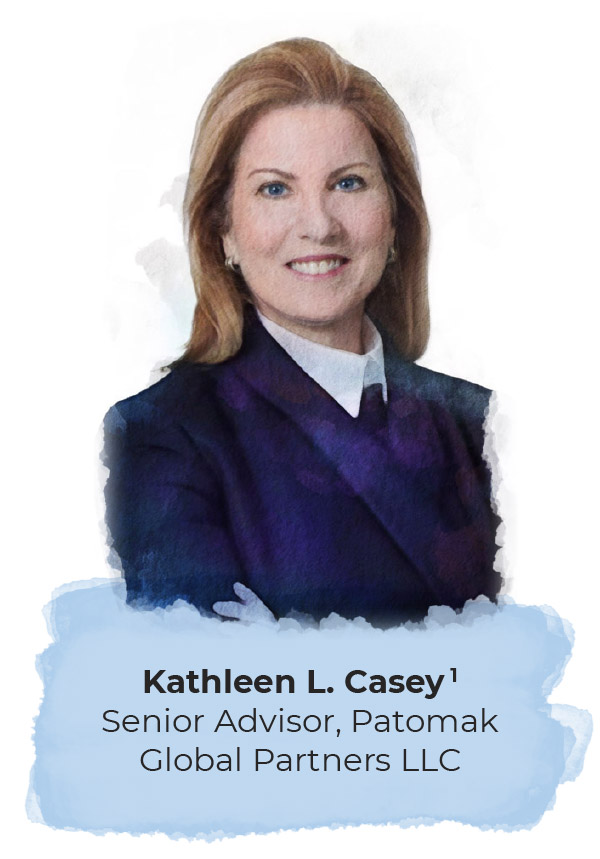
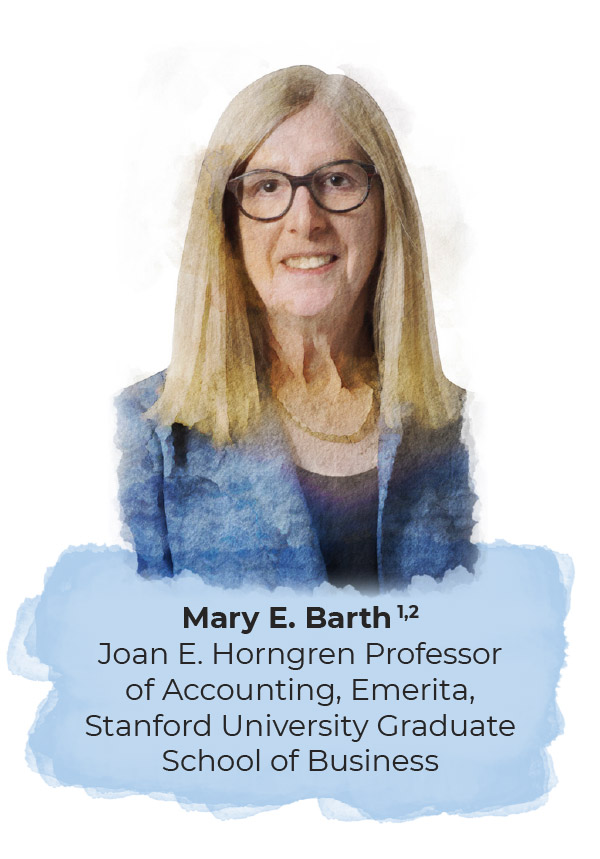
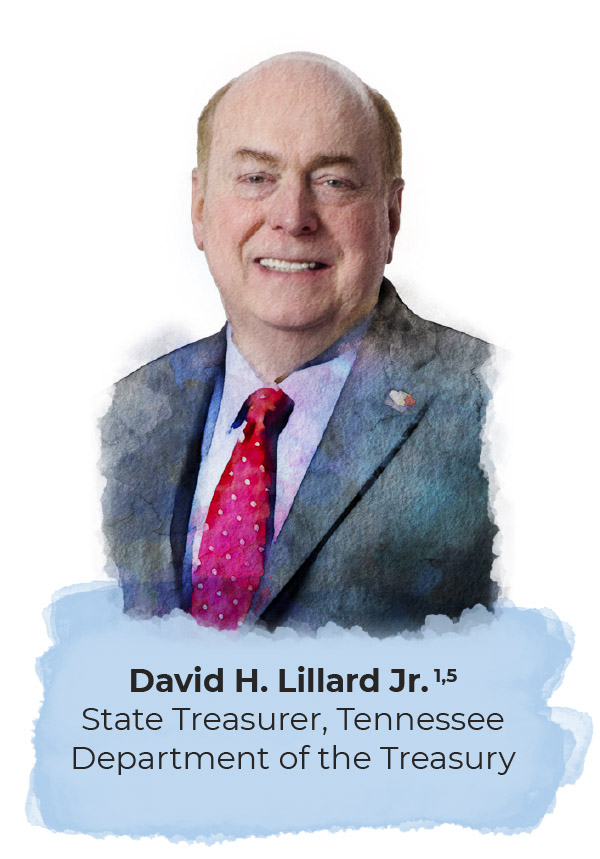
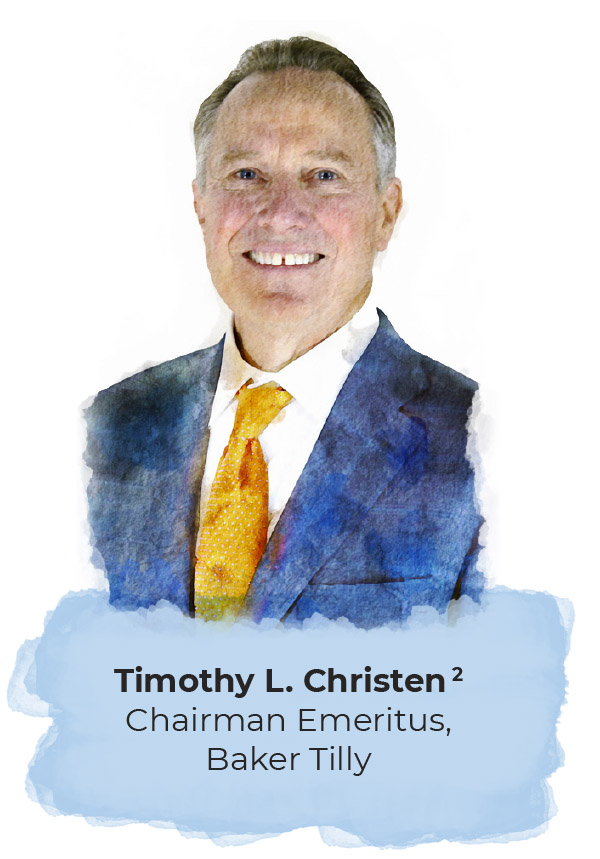
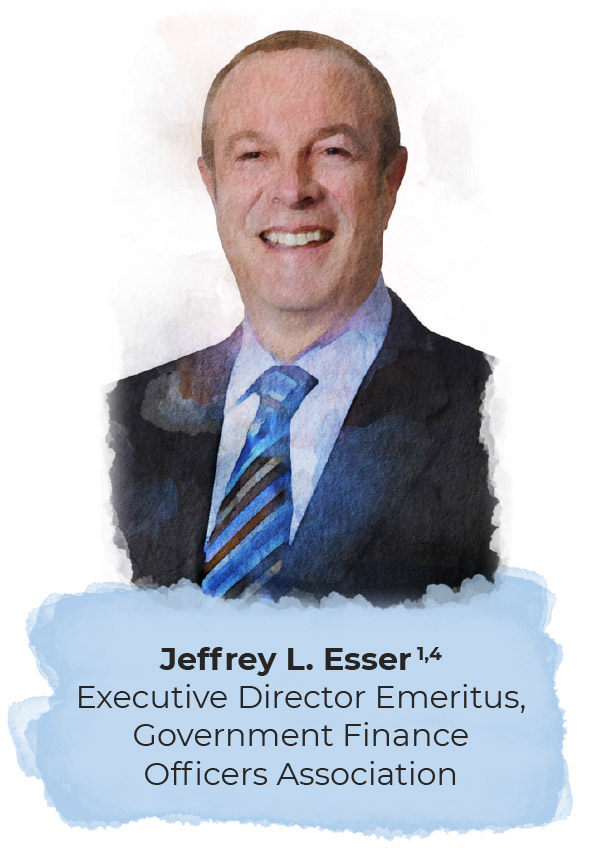
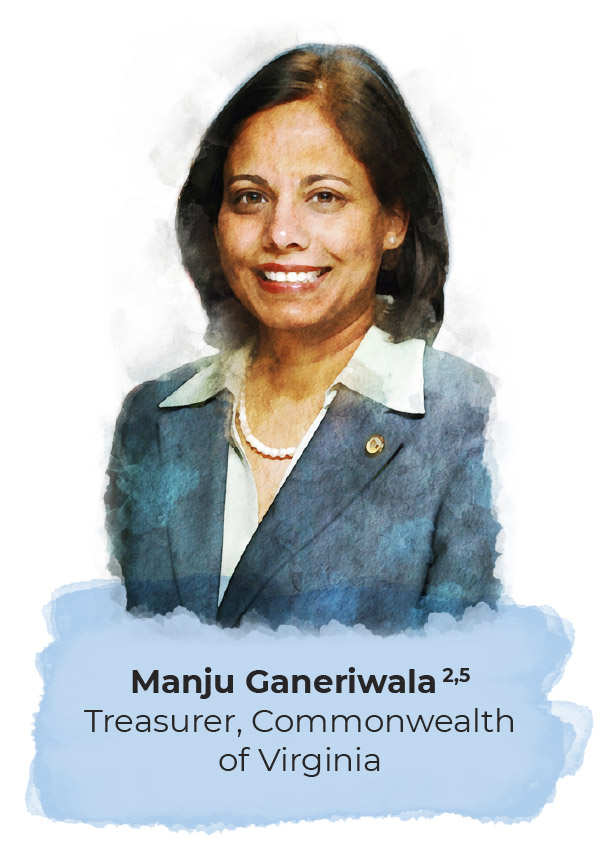
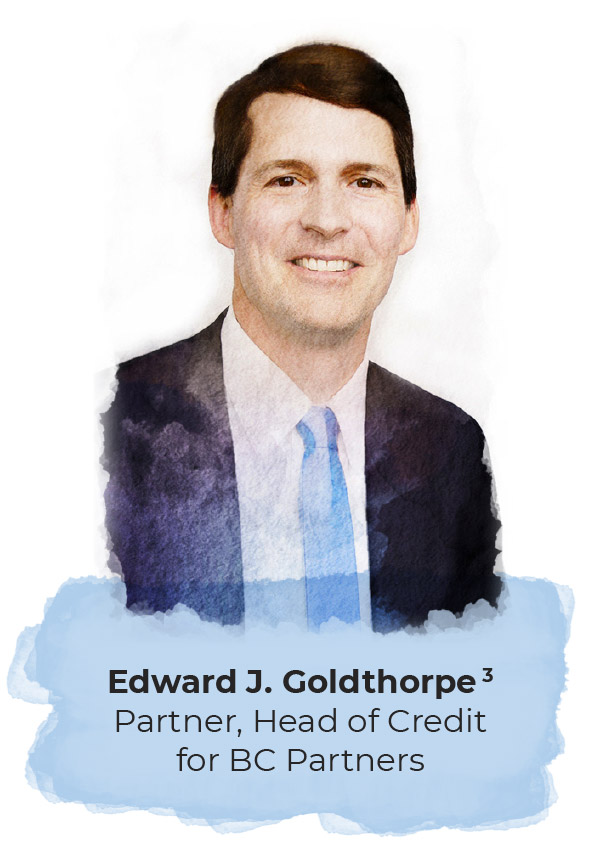

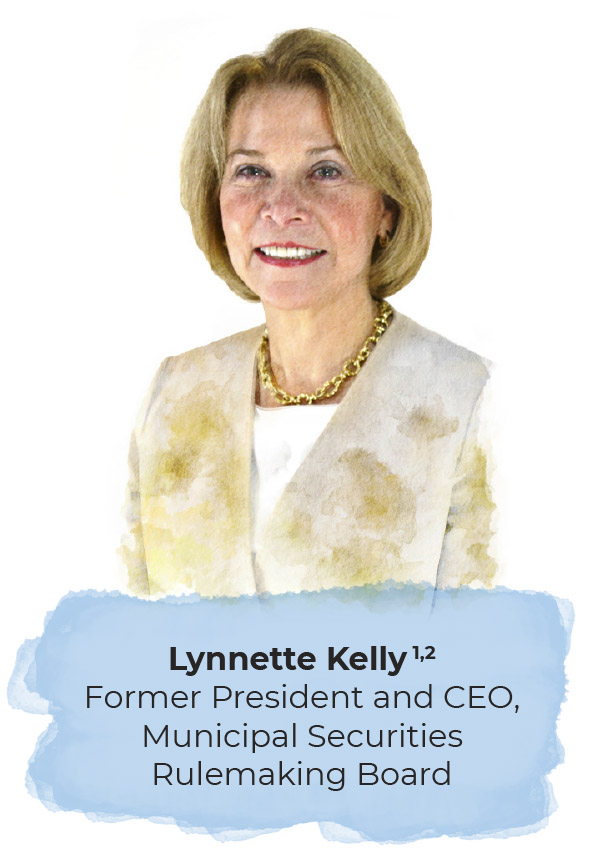
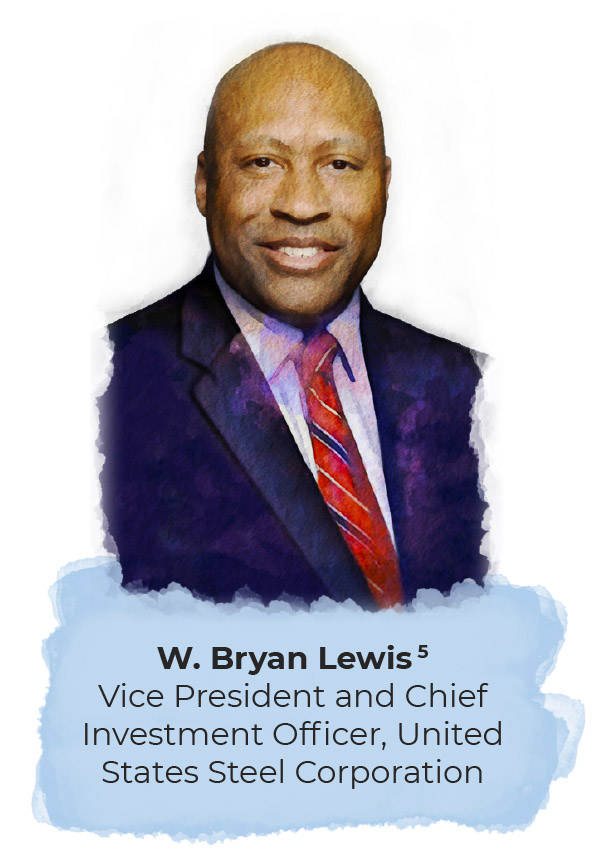
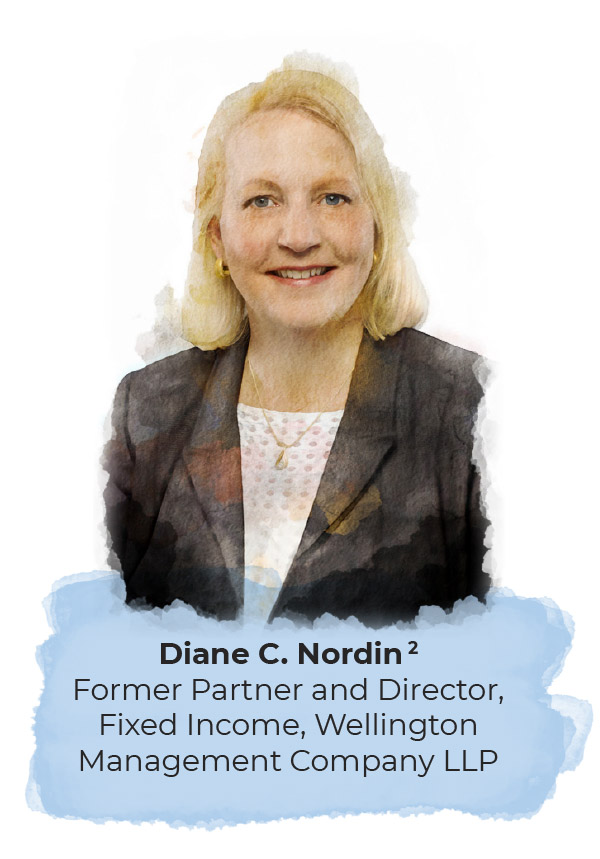
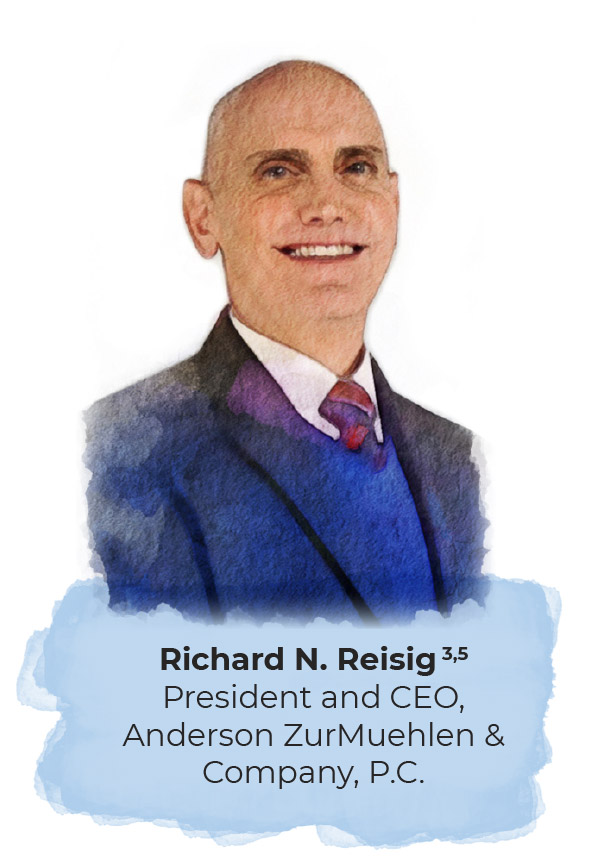

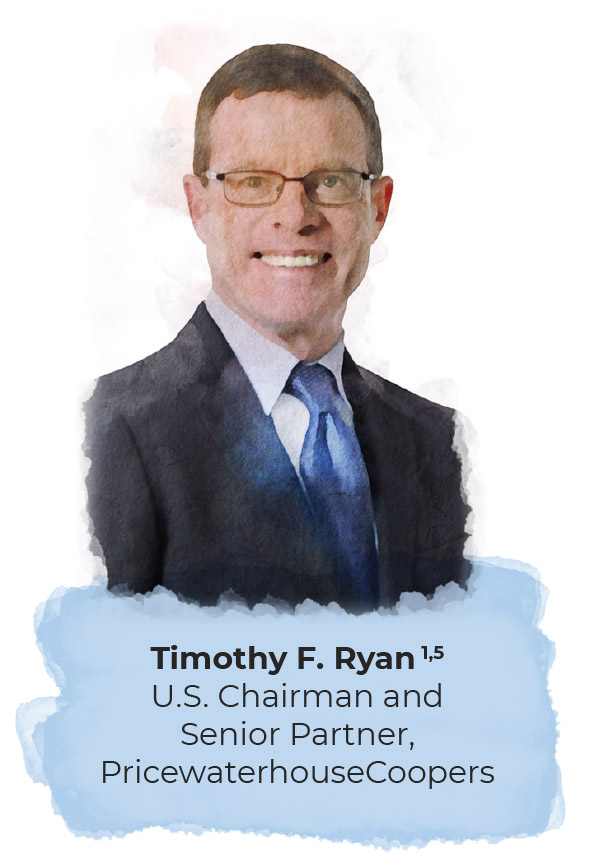
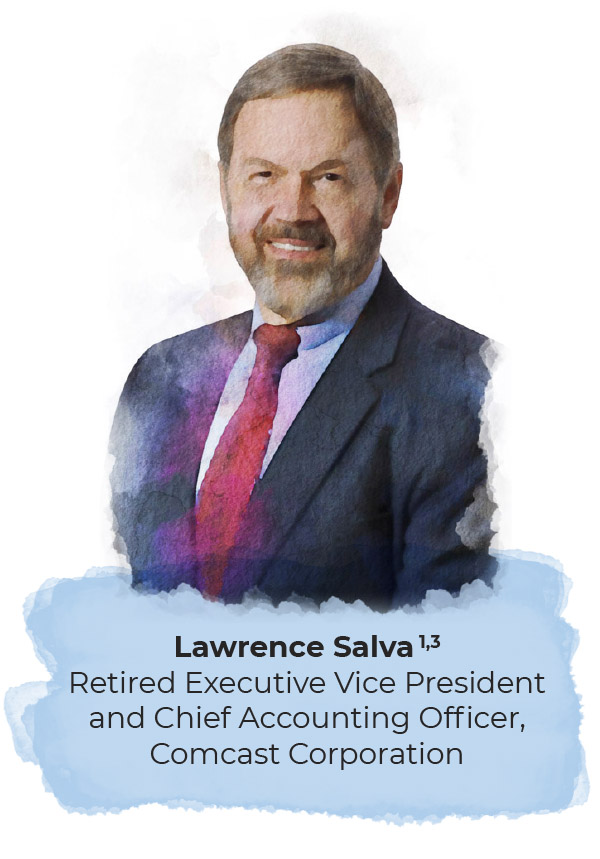
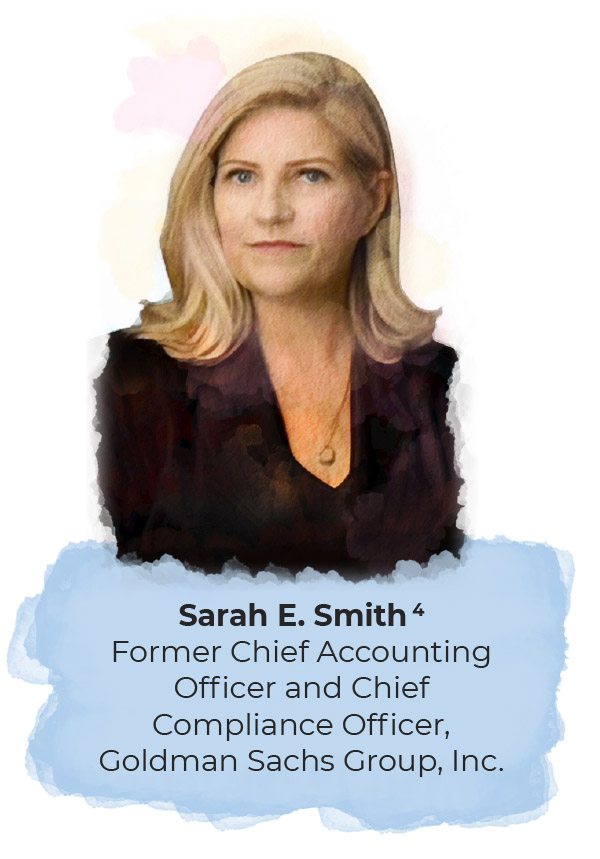
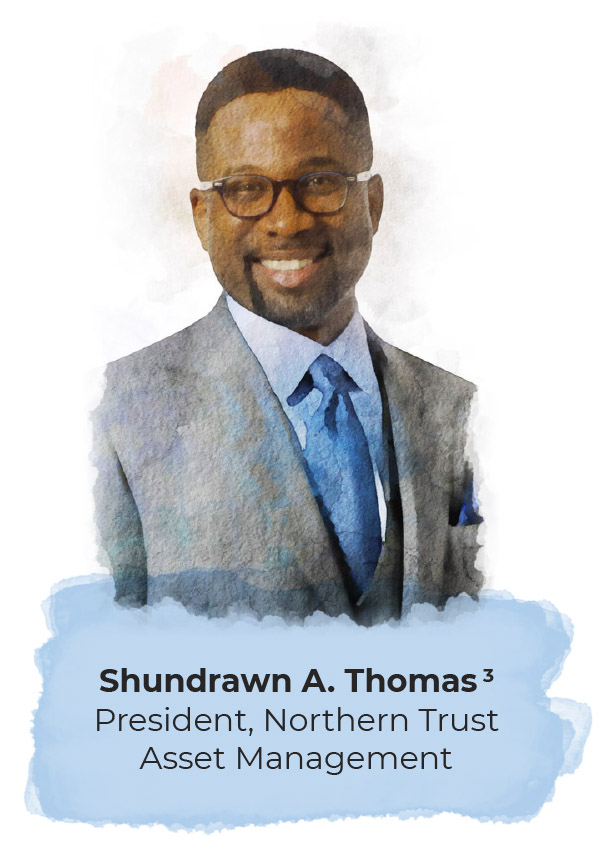
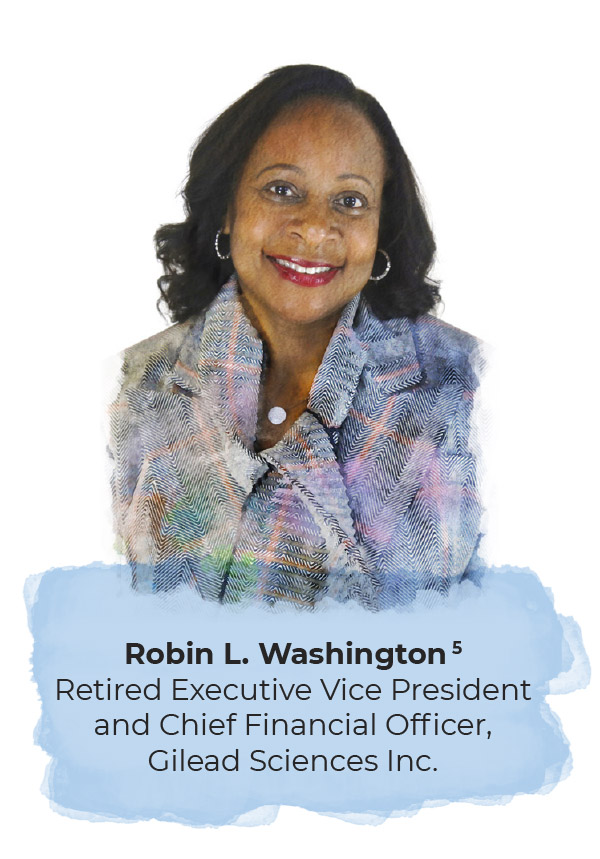
Senior Leadership
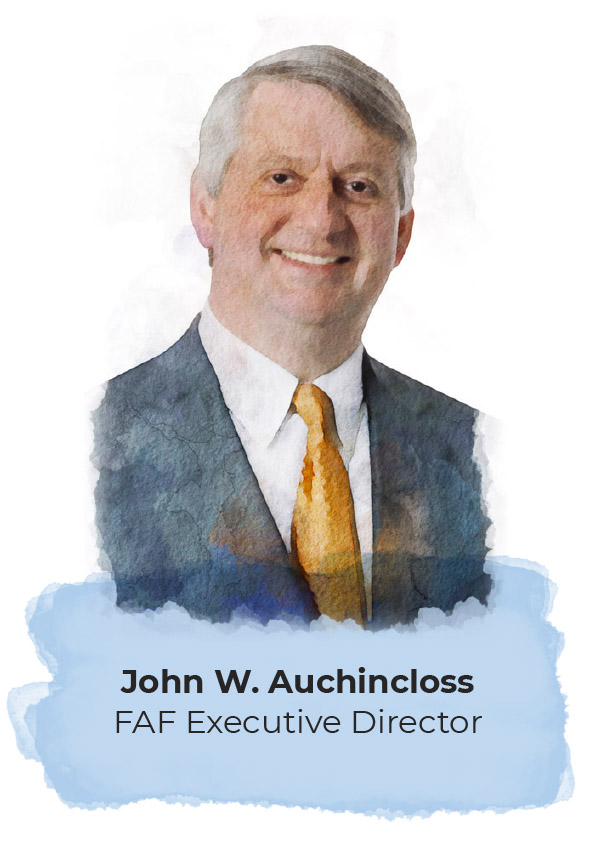
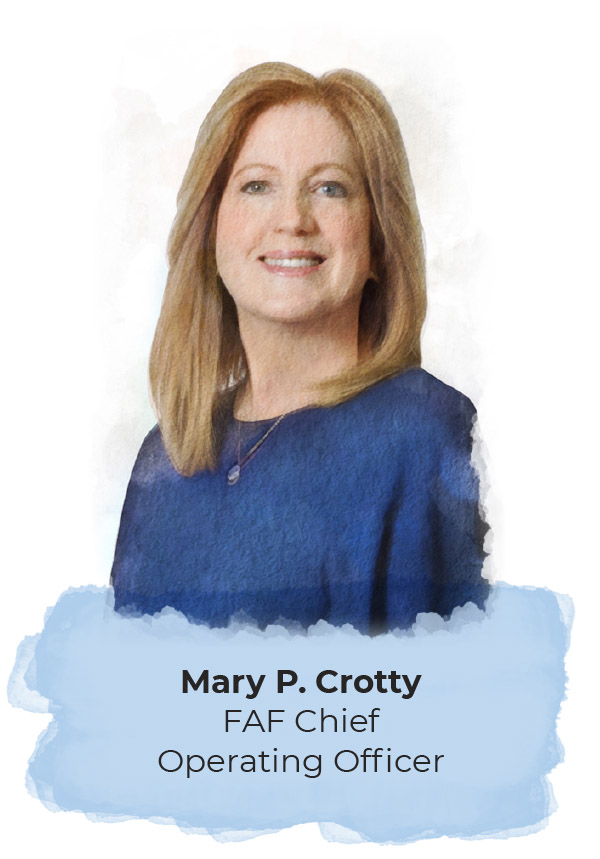
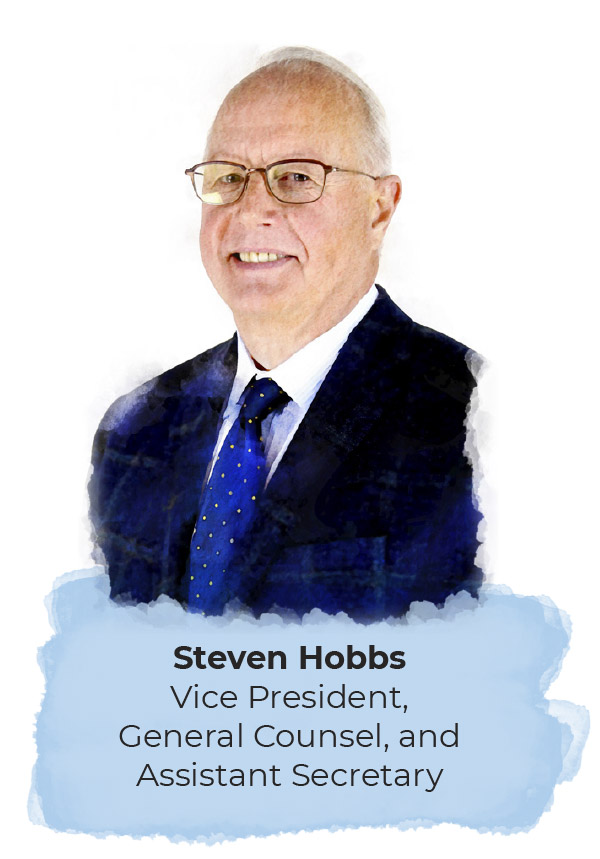
Officers
Chair,
Kathleen L. Casey
Vice Chair,
Mary E. Barth
Secretary and Treasurer,
David H. Lillard Jr.
Executive Director,
John W. Auchincloss
Chief Operating Officer,
Mary P. Crotty
Vice President, General Counsel and
Assistant Secretary,
Steven Hobbs
Trustee Committees
- 1 Executive Committee
Kathleen L. Casey, Chair,
Mary E. Barth, Vice Chair - 2 Appointments Committee*
Lynnette Kelly, Chair - 3 Audit and Finance Committee
Lawrence Salva, Chair - 4 Compensation Committee
Jeffrey L. Esser, Chair - 5 Standard-Setting Process Oversight Committee
David H. Lillard Jr., Co-Chair,
Timothy F. Ryan, Co-Chair
* Non-committee member governmental Trustees (Jeffrey Esser and David Lillard) serve ex officio on the Appointments Committee when a GASB member appointment is under consideration.
Members of the 
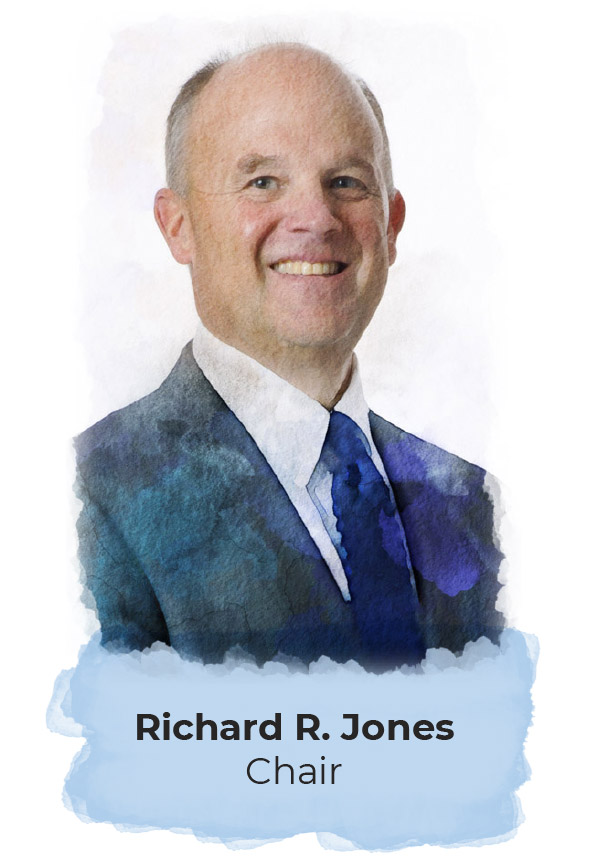
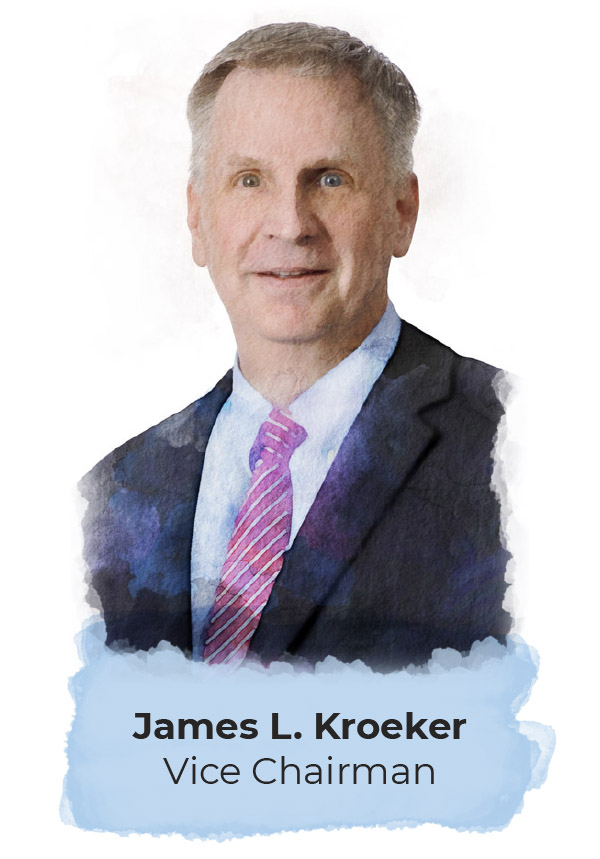
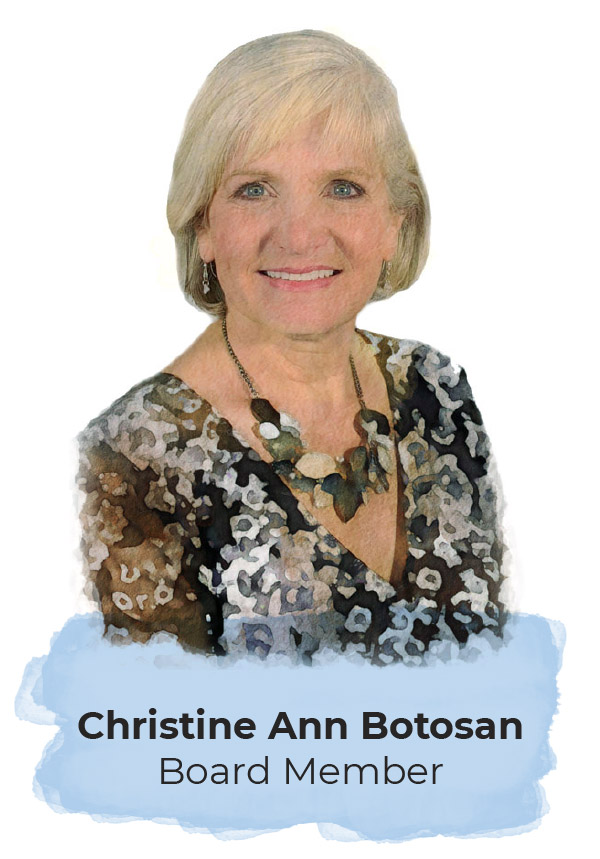
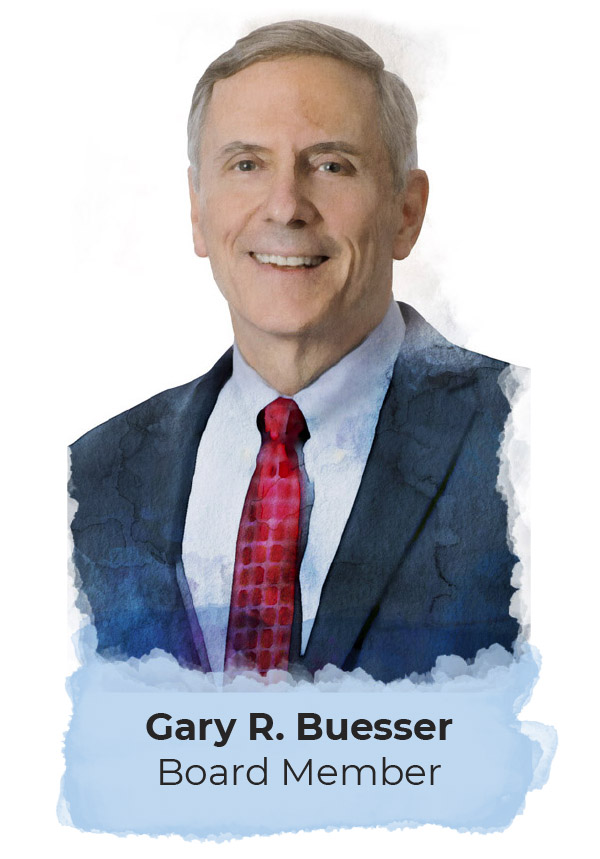
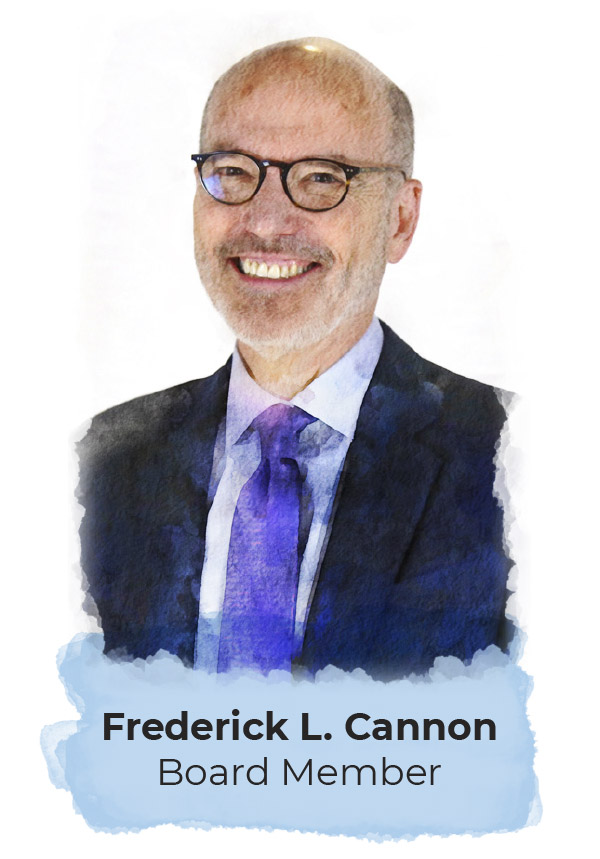
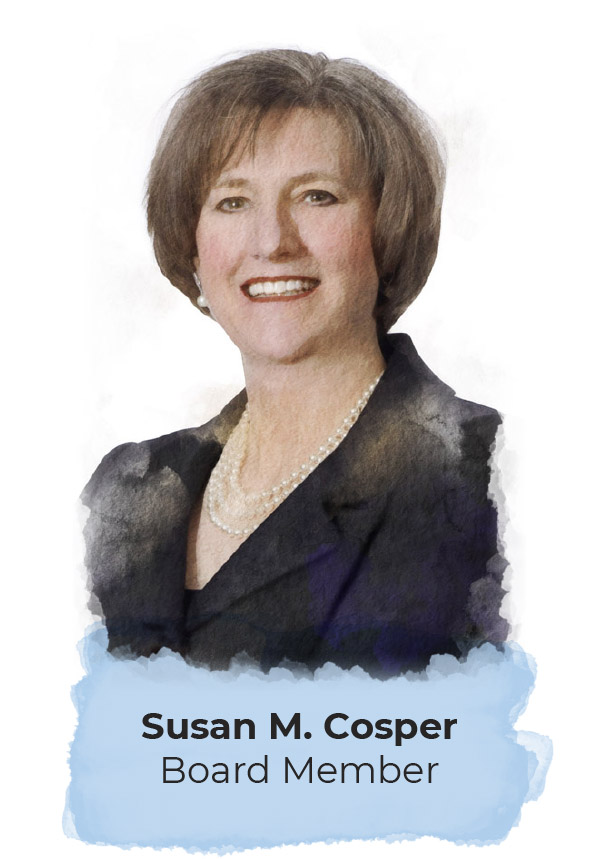
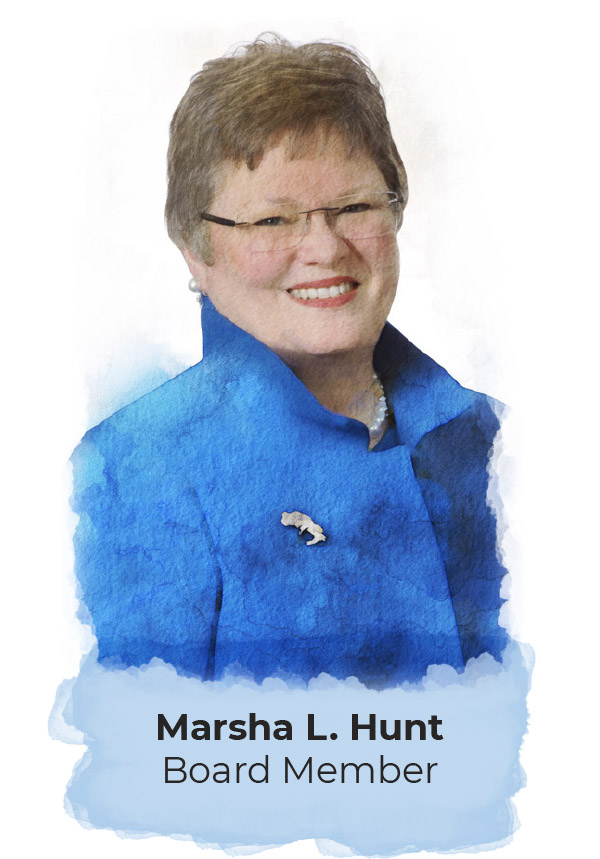
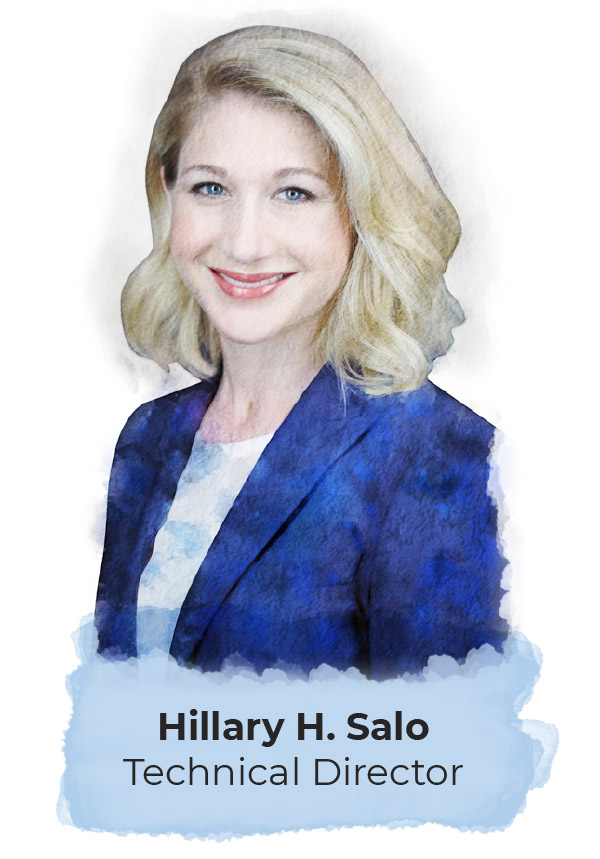
Members of the 
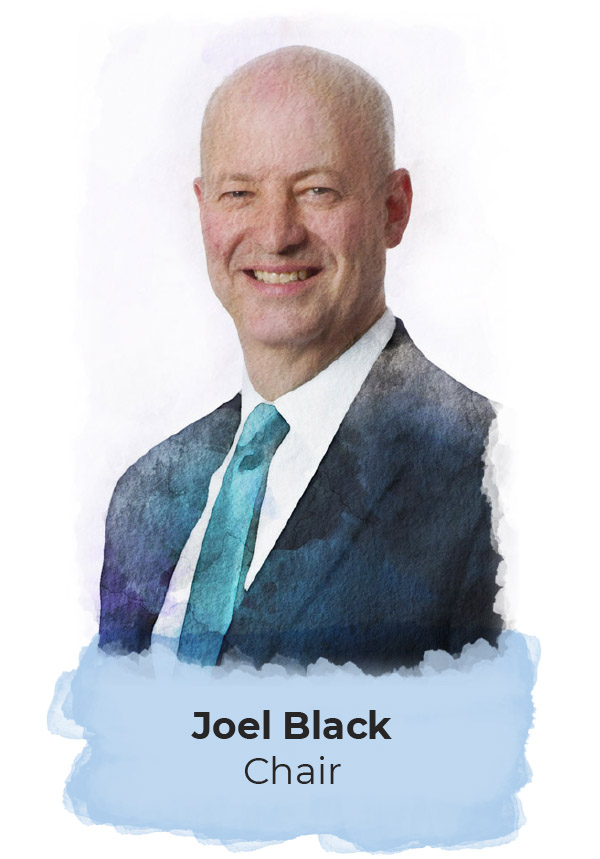
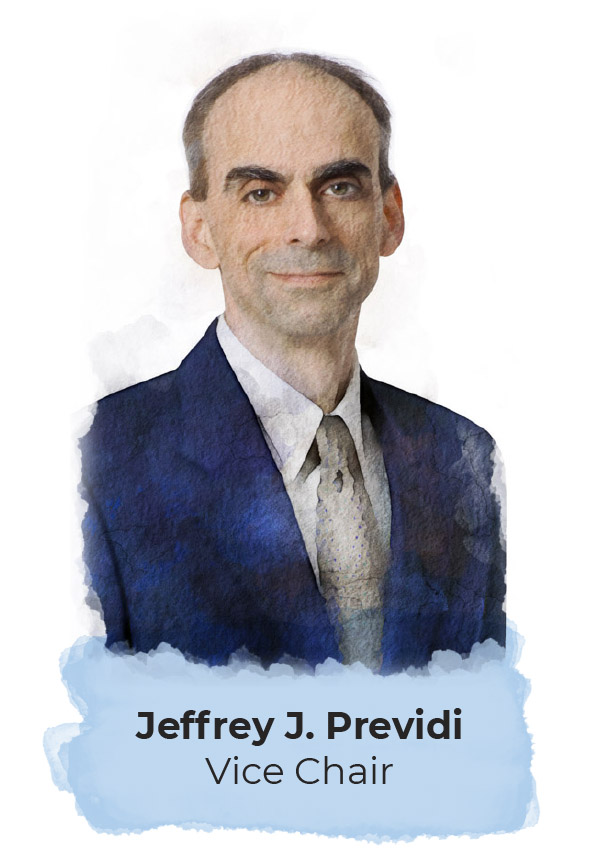
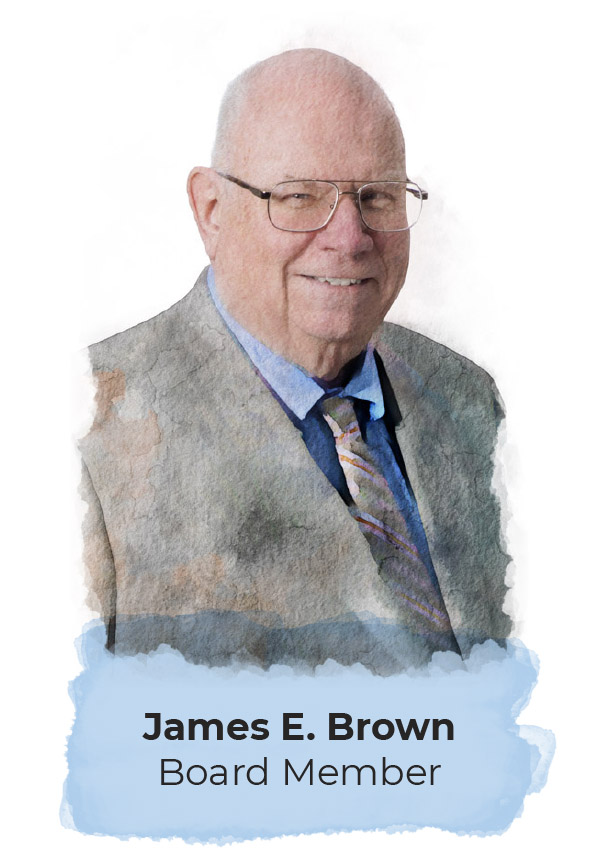
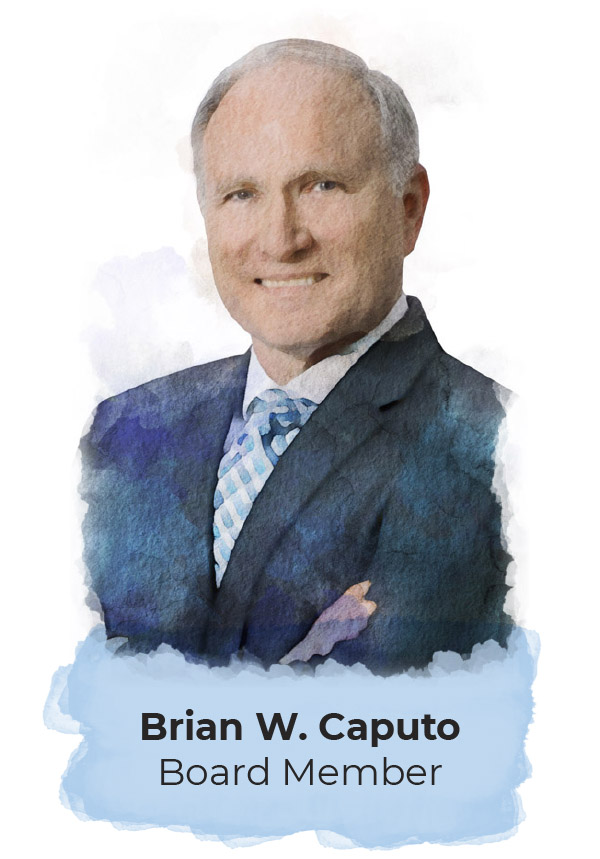
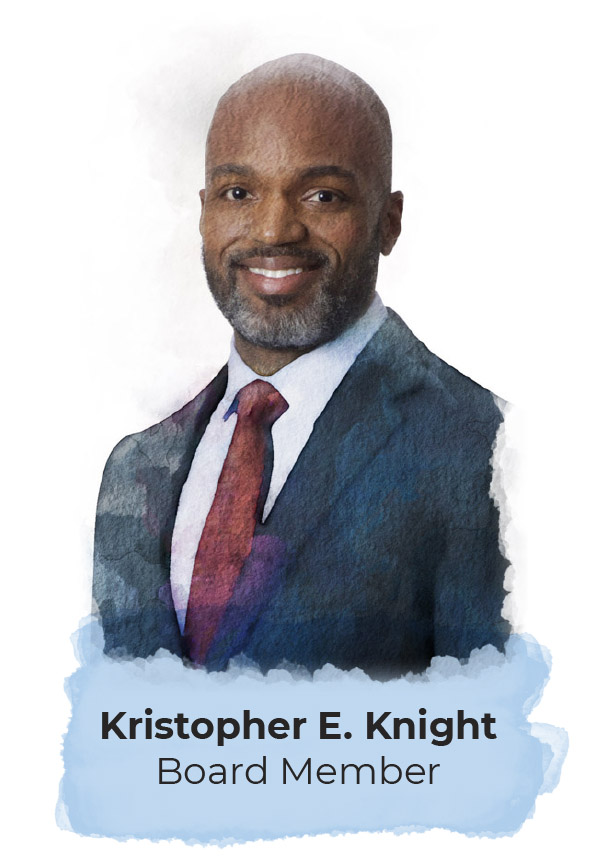
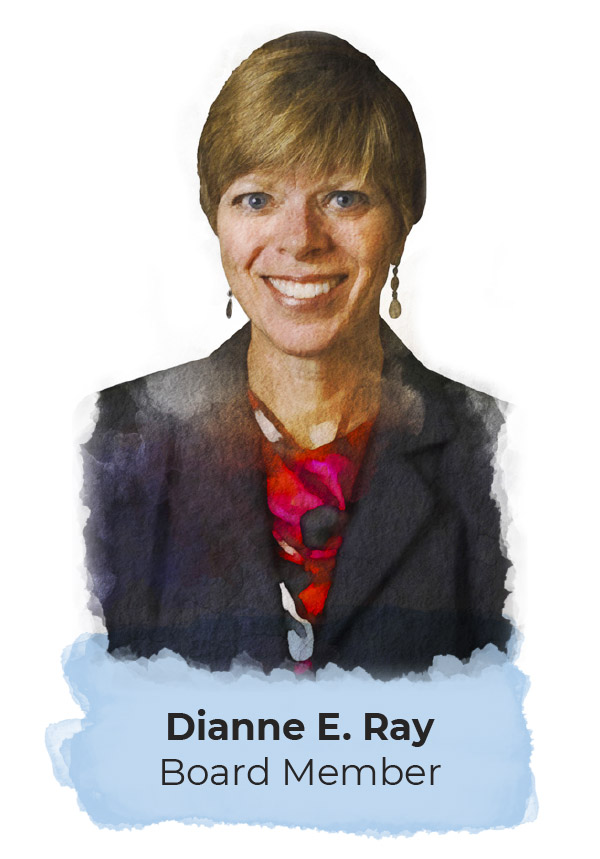
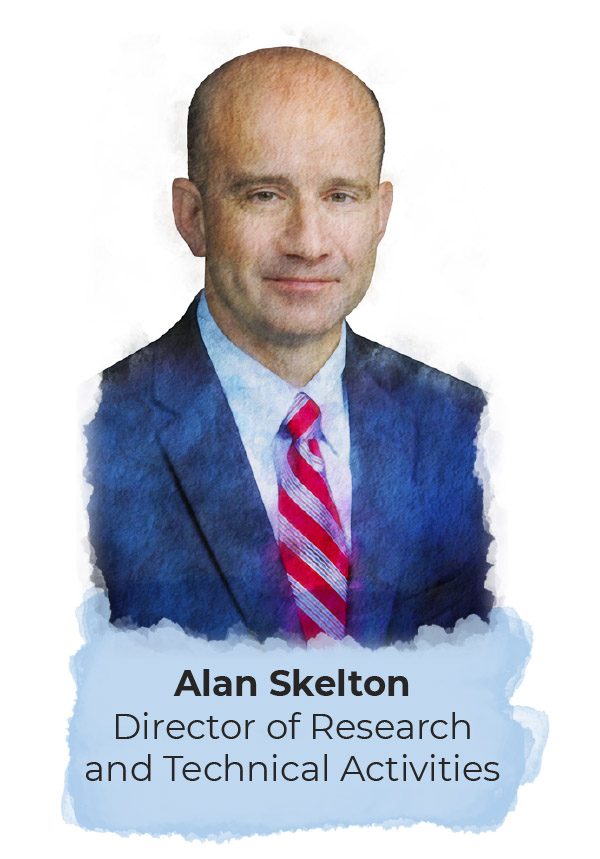
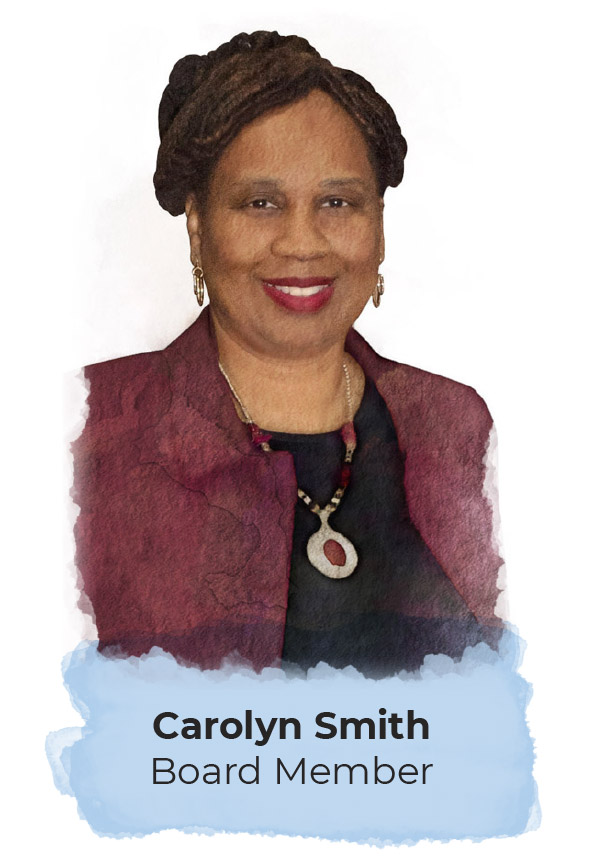
WELCOME
During the past year, the FAF Board of Trustees and the FASB welcomed the following leaders.
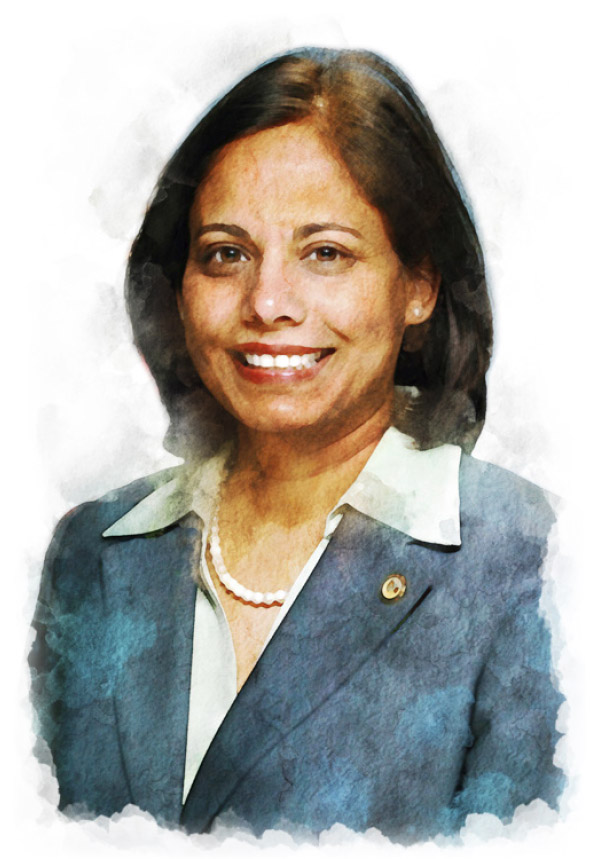
FAF
Joined January 2022
Manju Ganeriwala
Treasurer, Commonwealth of Virginia
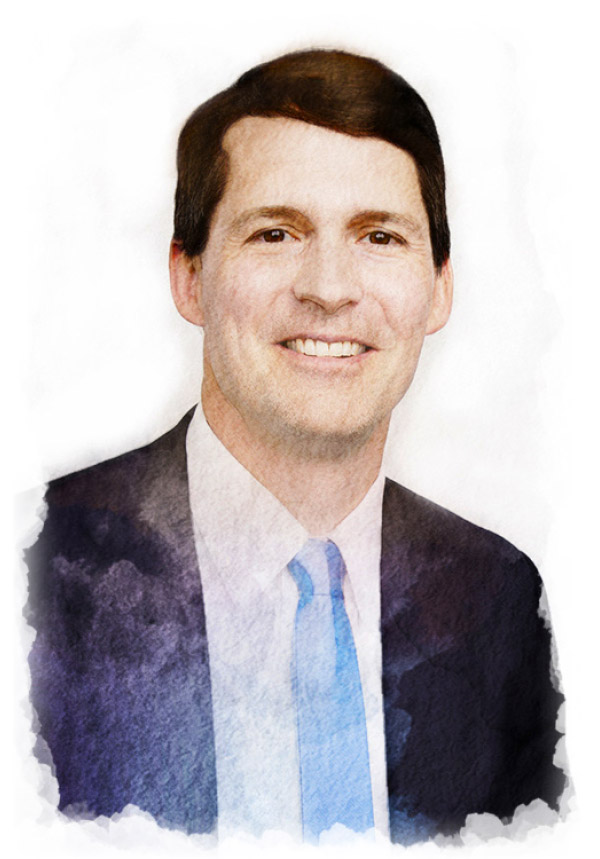
FAF
Joined January 2022
Edward J. Goldthorpe
Partner, Head of Credit for BC Partners
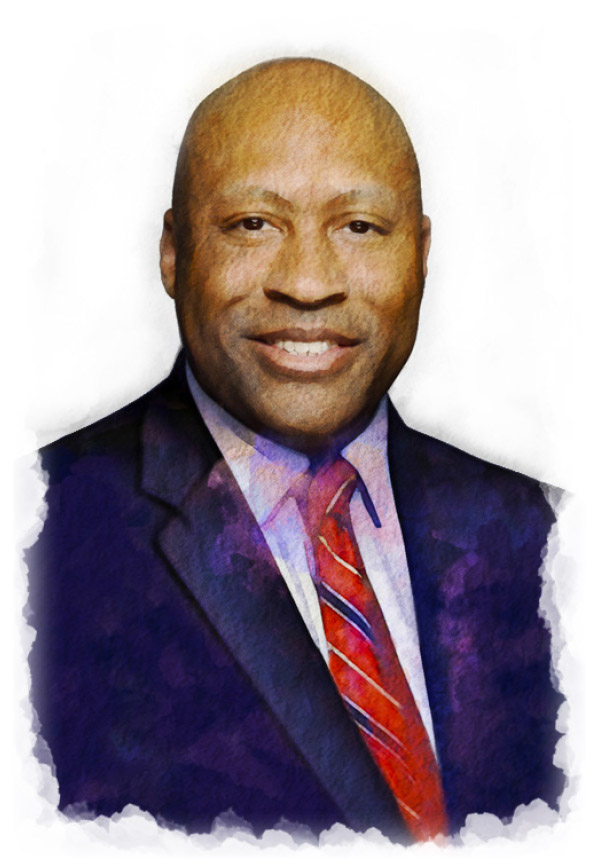
FAF
Joined January 2022
W. Bryan Lewis
Vice President and Chief Investment Officer, United States Steel Corporation
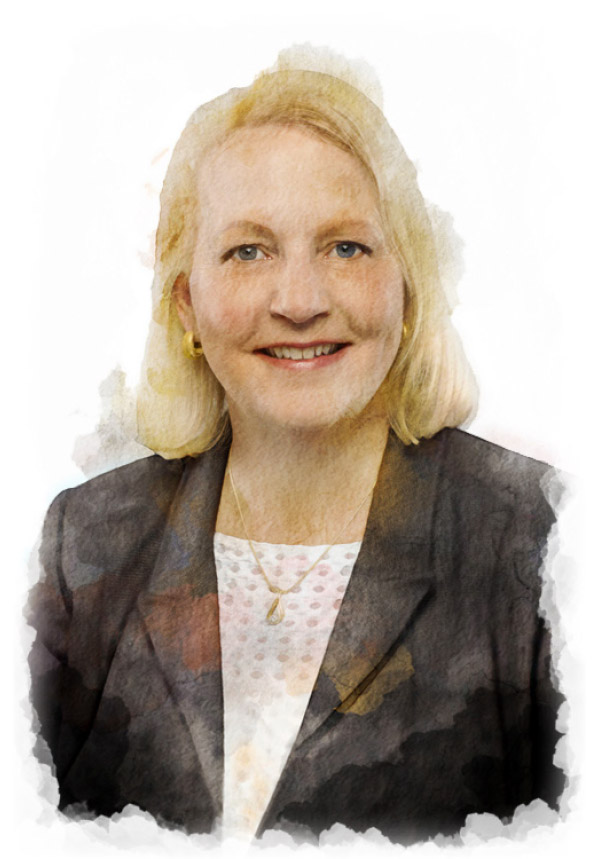
FAF
Joined January 2022
Diane C. Nordin
Former Partner and Director, Fixed Income, Wellington Management Company LLP
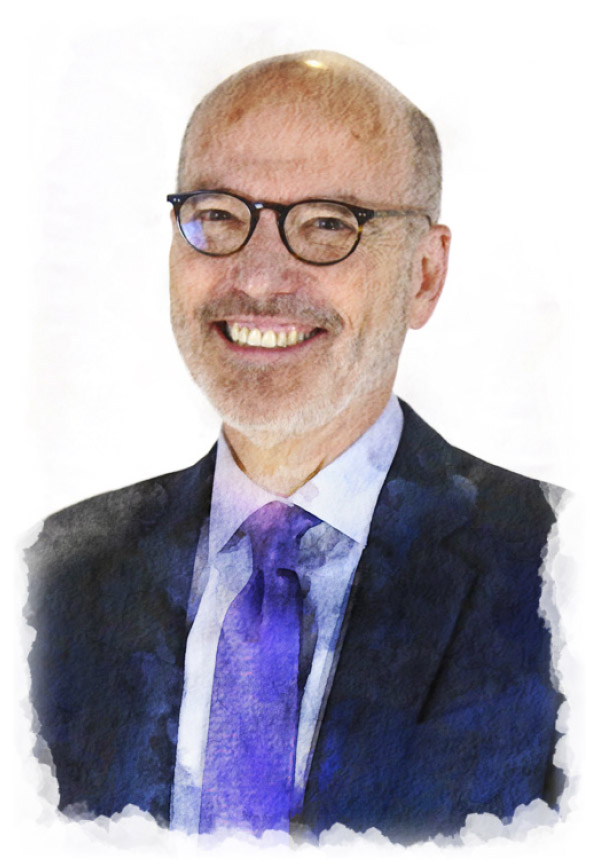
FASB
Joined July 2021
Frederick L. Cannon
Former Director of Research and Chief Equity Strategist for Keefe, Bruyette & Woods, Inc.
THANK YOU
During the past year, the following FAF Trustees and FASB leaders concluded their work with us. On behalf of the entire organization, we thank them for their outstanding service.
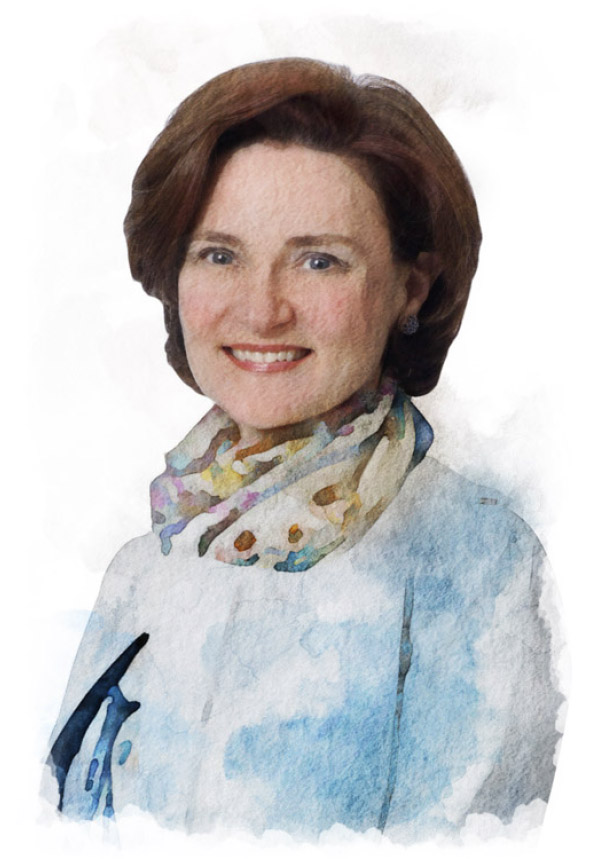
FAF
Completed service in December 2021
Susan J. Carter
Independent Director, BlackRock Multi-Asset Mutual Funds Board
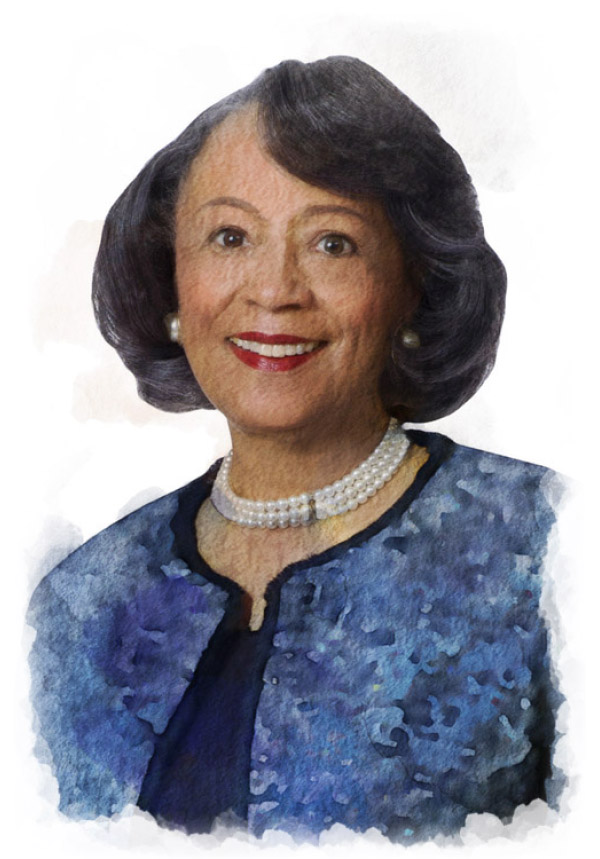
FAF
Completed service in December 2021
T. Eloise Foster
Chair, Maryland Supplemental Retirement Plans
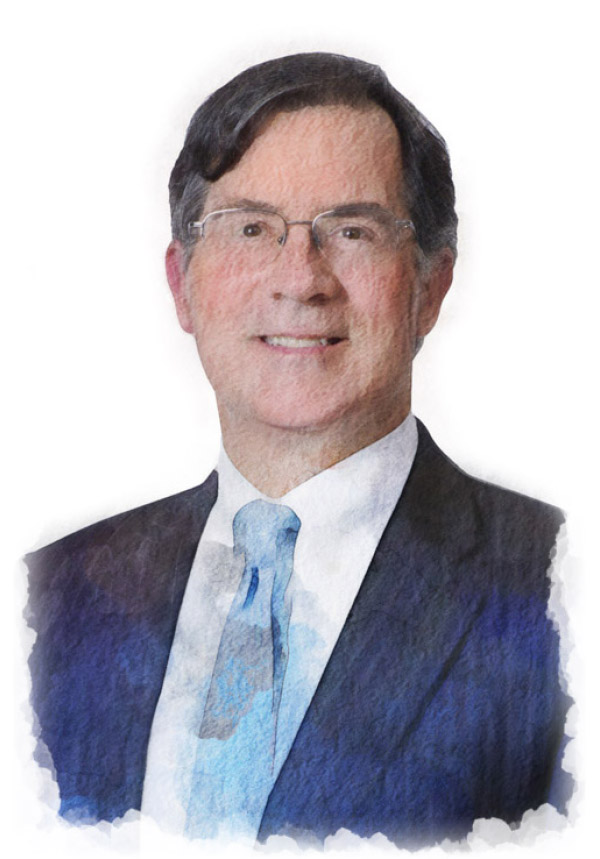
FAF
Completed service in December 2021
Anthony J. Dowd
President and Chief Executive Officer, Fairfield-Maxwell LTD.
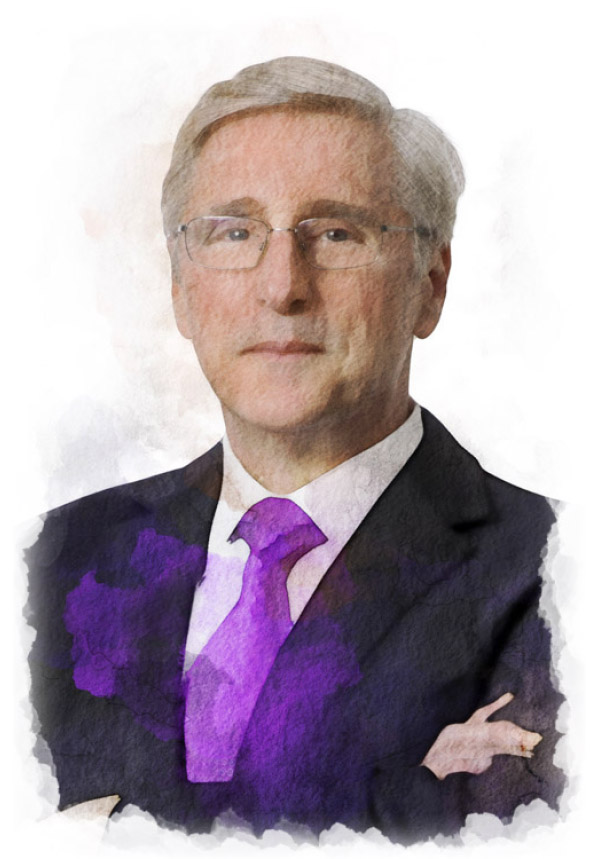
FASB
Completed service in June 2021
R. Harold Schroeder
Board Member, FASB
Advisory Groups
Advisory and other groups provide critical input to the FASB and the GASB. Complete membership rosters for each group are available by clicking on the group's icon below.
Financial Accounting Standards Advisory Council
Advises the FASB on issues related to projects on the Board’s agenda, possible new agenda items, project priorities, procedural matters that may require the attention of the FASB, and other matters as requested by the chair of the FASB. FASAC meetings provide the Board with an opportunity to obtain and discuss the views of a very diverse group of individuals from varied business and professional backgrounds.
Investor Advisory Committee
Provides advice, from the investors' perspective, on current and potential FASB agenda projects and emerging trends in the marketplace.
Not-for-Profit Advisory Committee
Provides advice on existing guidance, current and proposed technical agenda projects, and longer-term issues related to the not-for-profit sector.
Small Business Advisory Committee
Provides advice on FASB projects related to the operationality and the anticipated costs, complexities, and benefits of potential solutions principally from a small public company perspective.
Emerging Issues Task Force
The mission of the EITF is to assist the FASB in improving financial reporting through the timely identification, discussion, and resolution of financial accounting issues within the framework of the FASB Accounting Standards Codification®.
Private Company Council
The PCC is the primary advisory body to the FASB on private company matters. The PCC uses the Private Company Decision-Making Framework to advise the FASB on the appropriate accounting treatment for private companies for items under active consideration on the FASB’s technical agenda. The PCC also advises the FASB on possible alternatives within GAAP to address the needs of users of private company financial statements. Any proposed changes to GAAP are subject to endorsement by the FASB.
Governmental Accounting Standards Advisory Council
Consults with the GASB on technical issues on the Board’s agenda, project priorities, matters likely to require the attention of the GASB, and such other matters as may be requested by the GASB. GASAC meetings provide the Board with an opportunity to obtain and discuss views with a broad representation of preparers, auditors, and users of financial information.
GASB Task Forces
The GASB assembles task forces for all conceptual framework and comprehensive standards-setting projects and most major projects. Task forces serve as a sounding board, providing guidance and feedback to the GASB as a project progresses. Task force members typically have a particular knowledge of, or experience with, the issue being addressed in the project, and also are capable of articulating the views of other, similar constituents. They can identify possible implementation difficulties, assess the potential cost of proposed standards, or opine on the usefulness of the information that will result from those standards.
GASB Consultative Groups
Consultative groups are established to assist the GASB with the development of Implementation Guides for individual Statements and with conducting pre-agenda research. Consultative groups help identify issues to address and review drafts of the Guides prior to discussion by the Board or provide input on research plans and instruments. Like task force members, the members of a consultative group bring a particular expertise to the table that is relevant to the subject matter.
Financial Accounting Standards Advisory Council
Advises the FASB on issues related to projects on the Board’s agenda, possible new agenda items, project priorities, procedural matters that may require the attention of the FASB, and other matters as requested by the chairman of the FASB. FASAC meetings provide the Board with an opportunity to obtain and discuss the views of a very diverse group of individuals from varied business and professional backgrounds.
FASAC Chair
Michael M. Morrow
FASAC Executive Director
Alicia A. Manders
FASAC Coordinator
Elizabeth Gagnon
Supervising Project Manager
Financial Accounting Standards Board
FASAC MEMBERS
Lara Abrash
Chair and CEO
Deloitte & Touche LLP
James A. Andrus
Interim Managing Investment Director
Board Governance & Sustainability
CalPERS
Paul A. Beswick
Partner, Assurance Services (National Office)
Ernst & Young LLP
Todd Castagno*
Head of Global Valuation, Accounting & Tax Research
Morgan Stanley Research
Ted Christensen
Director and C. Herman and Mary Virginia Terry Distinguished Chair of Business
University of Georgia
Jeremy Croucher*
Partner-in-Charge, Department of Professional Practice
KPMG LLP
Debra Dial*
Senior Vice President and Global Controller
AT&T Inc.
Robert G. Fox
National Managing Partner of Professional Standards
Grant Thornton LLP
Karen J. Garnett
Former Partner
Proskauer Rose LLP
Katherine Gill-Charest
Executive Vice President, Controller & Chief Accounting Officer
Paramount Global
David Gonzales
Vice President — Senior Accounting Analyst
Moody’s Investors Service, Inc.
Howard B. Guild
Chief Accounting Officer
Schlumberger Limited
Elizabeth A. Hall
Vice President, Financial Controller
Mars, Incorporated
Clare A. Hart
Portfolio Manager, Managing Director
J.P. Morgan Asset Management
Mary Hoeltzel
Vice President, Global Chief Accounting Officer
Cigna Corporation
Cynthia T. Jamison
Board Member, Audit Committee
Tractor Supply, Office Depot, Big Lots, Darden Restaurants
Alice L. Jolla
Chief Accounting Officer and Corporate Vice President
Microsoft Corporation
Ginger M. Jones
Board Member, Chair of the Audit Committee
Tronox Holdings plc and Libbey, Inc.
Lisa Koonce
Deloitte & Touche Endowed Chair in Accounting
University of Texas at Austin
Karen Korn
Head of Alternative Product Development
Fidelity Investments
Fidelity Healthcare Group
Lara T. Long
Vice President, Chief Accounting Officer
AGCO Corporation
Saul Martinez*
Founder
Cambio Consulting LLC
Dorri C. McWhorter*
President and Chief Executive Officer
YMCA of Metropolitan Chicago
Kevin M. Mixon
Analyst
Miura Global Management, LLC
Jonathan Nus*
Managing Director
Alvarez & Marsal
Global Transaction Advisory
Randy D. Oberdiek
Partner – Regional Director of Accounting and Auditing (North Region)
BKD LLP
Johnbull Okpara*
Chief Accounting Officer and Controller
Citigroup Inc.
Nirav S. Parikh
Senior Investment Analyst
Mutual of America Capital Management
John W. Pietrowicz
Senior Managing Director and CFO
CME Group
Brian Regan
Managing Director and Chief Financial Officer
Spectrum Equity
Andrew L. Skatoff
Investments, Founder & Chief Investment Officer
Bancreek Capital Management, LP
Richard G. Sloan*
Deloitte and Touche LLP Chair in Accounting, Professor of Accounting, Finance and Business Economics
University of Southern California
J.W. Verret JD, CPA/CFF, CFE*
Associate Professor of Law
Antonin Scalia Law School
George Mason University, Forensic Accountant and Accounting Expert Witness
Veritas Financial Analytics, LLC
Greg Wachsman
Vice President, Equity Research Analyst
VOYA Investment Management
Antonio Yanez Jr.*
Partner
Willkie Farr & Gallagher LLP
*New member in 2022
COMPLETED SERVICE IN 2021
Avi Berg
Chief Investment Officer
Satovsky Asset Management
Rudolf A. Bless
Chief Accounting Officer
Bank of America
Gordon T. Edwards
Chief Financial Officer
Marshfield Clinic Health System
Elizabeth Graseck
Managing Director
Morgan Stanley, Research Division
Heather Horn*
Deputy Chief Accountant and Strategic Thought Leader
PwC LLP
Amie Thuener
Vice President, Chief Accountant
Alphabet
John White
Partner—Corporate
Cravath, Swaine & Moore LLP
Teri Lombardi Yohn
Professor of Accounting
Goizueta Business School
Emory University
Investor Advisory Committee
Provides advice, from the investors' perspective, on current and potential FASB agenda projects and emerging trends in the marketplace. Members bring varied experience in equity and credit financial analysis across a wide spectrum of industries in order to provide insights into whether financial reporting is meeting user needs.
IAC Co-Chairs
Jeffrey Brickman
Senior Investor Liaison
Financial Accounting Standards Board
Chandy Smith
Senior Investor Liaison
Financial Accounting Standards Board
IAC Members
Nichole Burnap
Investment Manager
Teachers Retirement System of Texas
Kevyn Dillow
Vice President, Senior Accounting Analyst
Moody’s Investors Service
Ronald J. Graziano
Managing Director, Global Accounting & Tax Research
Credit Suisse Group
Mark Hamel
Principal
Assay Research
Catherine Mealor*
Managing Director
Keefe, Bruyette & Woods (KBW)
Dennis Neveling*
Managing Director and Analyst, Global Consumer Staples
Lazard Asset Management
David Pizzimenti*
Senior Equity Analyst
Amundi Asset Management
*New member in 2021
Completed service in 2021
Todd Castagno
Executive Director and Equity Research Analyst
Morgan Stanley
Yoni Engelhart
Partner
Schilit Forensics
Brian Kleinhanzl
Managing Director
Keefe, Bruyette & Woods, Inc.
Janet Pegg
Analyst
Zion Research Group
NAC Chair
Jeffrey D. Mechanick
FASB Assistant Director—Nonpublic Entities
FASB LIAISON
Christine Ann Botosan
Member
Financial Accounting Standards Board
NAC COORDINATOR
Jenifer J. Wyss
Supervising Project Manager
Financial Accounting Standards Board
NAC Members
John Alfonso
Partner, Not-for-Profit & Education Industry Leader
CohnReznick LLP
Kevin Carey
Chief Financial Officer
Young Adult Institute, Inc.
Brian Conner*
Partner
Moss Adams LLP
Jennifer Deger
Director of Finance – Global Controller
Bill & Melinda Gates Foundation
Tina Dzik
Partner
Cohen & Company
Alyssa Federico
Vice President & Director – Finance
Foundation for The Carolinas
Melisa Galasso
Owner
Galasso Learning Solutions
Alex Galeano*
Senior Executive Vice President & Chief Financial Officer
Independent Community Bankers of America
Dennis Gephardt
Vice President, Senior Credit Officer
Moody’s Investors Service
Andrea Kantor*
Managing Director, Not-for-Profit
Webster Bank
Brian McAllister*
Professor of Accounting
University of Colorado—Colorado Springs
JR Miller*
Executive Vice President, Chief Financial Officer
The Leukemia & Lymphoma Society
Andrew M. Paluf
Associate Vice President for Finance & Controller
University of Notre Dame
Deana Paradis*
Chief Financial Officer
Louisville Collegiate School
Ksenia Popke*
Partner
Eide Bailly LLP
Barbara Potts
System Vice President – Finance
SSM Health
Christine E. Terhark
Audit & Assurance Managing Director
Deloitte & Touche LLP
Andrea Wright
Partner
Johnson Lambert LLP
*New member in 2022
Observers
Judith Welsh-Liebross
New York State Department of Law, Charities Bureau
(Representing National Association of State Charity Officials)
Ashley Whitaker
Senior Manager—NFP Product and Portfolio
AICPA
Completed Service in 2021
John D. Griffin
Senior Vice President & Controller
AARP
David C. Horne
Chief Financial Officer
Mother Cabrini Health Foundation
Formerly Chief Financial Officer, March of Dimes
Kim E. Keenoy
Senior Vice President
Bank of America Merrill Lynch
Kimberly K. McKay
Managing Partner
BKD, LLP
Carolyn Mollen
Vice President of Finance & Administration and Treasurer
Resources for the Future
Formerly Chief Financial Officer, Independent Sector
Tammy R. Waymire
Professor
Middle Tennessee State University
SBAC Chair
Alicia A. Manders
Assistant Director
Financial Accounting Standards Board
SBAC Coordinator
Lucy Cheng
Project Manager
Financial Accounting Standards Board
FASB Liaison
Marsha L. Hunt
Member
Financial Accounting Standards Board
SBAC Members
Gary Bachman
Head of Strategic Initiatives
GQG Partners
Karl Bailliez*
Senior Operating Executive and Finance Practice Leader (COAC)
Cerberus Capital Management
Jessica R. Doran
Chief Financial Officer
Pzena Investment Management
Richard E. Forrestel
Treasurer
Cold Spring Construction
K. Scott Gray
Chief Financial Officer
Twin Peaks Restaurants
Dominick Kerr
Partner, Global Accounting Standards & Professional Practice
Connor Group
Christopher Lafond
Chief Financial Officer
Insurity, Inc.
Ryan LaFond
Partner and Deputy Chief Investment Officer
Algert Global
Geoffrey R. Morgan
Partner
Croke Fairchild Morgan & Beres
Michael J. Phillips
Chief Executive Officer
Planters First Bank
James A. Rotherham
Audit Partner
Baker Tilly US, LLP
Ryan Siurek*
Chief Accounting Officer
Biodesix, Inc.
Jonathan C. Tomazic
Partner
Marcum LLP
*New member in 2021
Completed Service in 2021
Rick Day
Partner, National Director of Accounting
RSM US LLP
David Gonzales
Vice President – Senior Accounting Analyst
Moody's Investors Service
David W. Hinshaw
Managing Partner, Professional Standards Group
Dixon Hughes Goodman LLP
Greg Kowieski
Partner
Moss Adams LLP
Robert B. Vogt
Partner, Professional Practice Group
Ernst & Young LLP
EITF Chair
Hillary H. Salo
Financial Accounting Standards Board
EITF Coordinator
Fungisai Chambwe
Financial Accounting Standards Board
EITF Members
Kimber Bascom
KPMG LLP
Paul A. Beswick
Ernst & Young LLP
Terri Z. Campbell
Archer Bay Capital LLC
Jack Ciesielski*
R.G. Associates
Brandon Coleman*
Deloitte & Touche LLP
Kevin McBride
ServiceNow, Inc
Liesl Nebel
Consultant & Advisor
Dan Palomaki*
Citigroup Inc.
Jeremy Perler
Schilit Forensics
Matthew Schechter
Arbor Capital
Jay Seliber*
PricewaterhouseCoopers LLP
Eric C. West
Amazon.com, Inc.
Aleks Zabreyko
Connor Group
*New member in 2021
Participating Observers
John Vanosdall
Securities and Exchange Commission
Angela Newell (FinREC)
BDO USA, LLP
Holly Nelson (PCC)
Key Advisory Services
Completed Service in 2021
Lawrence Dodyk
PricewaterhouseCoopers LLP
Jeffrey Nickell
Deloitte & Touche LLP
Private Company Council
The PCC is the primary advisory body to the FASB on private company matters. The PCC uses the Private Company Decision-Making Framework to advise the FASB on the appropriate accounting treatment for private companies for items under active consideration on the FASB’s technical agenda. The PCC also advises the FASB on possible alternatives within GAAP to address the needs of users of private company financial statements. Any proposed changes to GAAP are subject to endorsement by the FASB.
PCC Chair
Candace Wright
Director
Postlethwaite & Netterville
FASB Liaison
Susan M. Cosper
Member
Financial Accounting Standards Board
PCC Coordinator
Jenifer J. Wyss
Supervising Project Manager
Financial Accounting Standards Board
PCC Members
Zubin Avari
Managing Partner
Charter Oak Equity, LP
Jeremy Dillard
Partner
SingerLewak LLP
Paul Hensley
Senior Vice President and Chief Financial Officer
Holt Texas, Ltd.
Robert Messer
Senior Executive Vice President, Chief Financial Officer-Chief Risk Officer
American National Bank of Texas
Michael Minnis
Professor
University of Chicago Booth School of Business
Holly Nelson
Chief Executive Officer
Key Advisory Services
David Pesce
Head of Surety
Munich Re Specialty Insurance
Adam Roark*
Director
Assurance Innovation and Methodology at Dixon Hughes Goodman (DHG)
Douglas Uhl
Principal Team Leader, Corporate Accounting Policy
Chick-fil-A, Inc.
Yan Zhang
Partner
EisnerAmper LLP
*New member in 2021
Completed Service in 2021
Timothy Curt
Former Managing Director
Warburg Pincus LLC
David Lomax
Assistant Vice President and
Underwriting Officer
Liberty Mutual Insurance Company
Governmental Accounting Standards Advisory Council
Consults with the GASB on technical issues on the Board’s agenda, project priorities, matters likely to require the attention of the GASB, and such other matters as may be requested by the GASB. GASAC meetings provide the Board with an opportunity to obtain and discuss views with a broad representation of preparers, auditors, and users of financial information.
GASAC Chair
Elizabeth Pearce
Treasurer
State of Vermont
(Nominated by the National Association of State Treasurers)
MEMBERS
Duncan Baird
Executive Director
Arkansas Public Employee's Retirement System
(Nominated by the National Association of State Budget Officers)
Robert Balducci
Comptroller
New York City Bond Financing Entities
(Nominated by the U.S. Conference of Mayors)
Kristine Brock
Assistant City Administrator and Chief Financial Officer
City of Franklin, TN
(Nominated by the International City/County Management Association)
Chris B. Brown
Controller
City of Houston, TX
(Nominated by the National League of Cities)
Thad Calabrese
Associate Professor
Robert F. Wagner Graduate School of Public Service
New York University
(Nominated by the Association for Budgeting and Financial Management)
Karen Carraher
Executive Director
Ohio Public Employees Retirement System
(Nominated by the National Association of State Retirement Administrators)
Davis A. Collins
Municipal Credit Analyst Fixed Income Division
T. Rowe Price
(Nominated by the Investment Company Institute)
Joni Davis
Accounting Manager
Nebraska Public Power District
(Nominated by the American Public Power Association)
Scott DeViney*
Assistant Director of Quality Assurance
Office of the Washington State Auditor
(Nominated by the Association of Government Accountants)
Kristen Fontana
Vice President, Credit Strategies
Public Finance Investment Banking
Wells Fargo Corporate & Investment Banking
(Nominated by the Securities Industry and Financial Markets Association)
Robert Hamilton
Statewide Accounting and Reporting Services Manager
State of Oregon
(Nominated by the National Association of State Auditors, Comptrollers & Treasurers)
Matthew Harvey
Investment Professional, Municipal Bonds
State Farm
(Nominated by the Insurance Industry Investors)
Ricky Hatch
County Clerk/Auditor
Weber County, UT
(Nominated by the National Association of Counties)
Douglas Kilcommons*
Managing Director
Public Finance Sector
Kroll Bond Rating Agency
(Nominated by a Bond Rating Agency)
Anita Kovacs*
Vice President of Business Affairs
Pensacola State College, FL
(Nominated by the National Association of College & University Business Officers)
Suzanne Lowensohn*
Associate Professor, Master of Accountancy Program Director
The Grossman School of Business
University of Vermont
(Nominated by the American Accounting Association)
Angus Maciver
Legislative Auditor
State of Montana
(Nominated by the National Conference of State Legislatures)
Joseph R. Morrissette
Director, Office of Management and Budget
State of North Dakota
(Nominated by the National Governors Association)
Samuel Thomas Owl, Jr.
National Tribal Services Leader
CLA—Washington, DC
(Nominated by the Native American Finance Officers Association)
Harriet Richardson*
Inspector General
Bay Area Rapid Transit
(Nominated by Association of Local Government Auditors)
Robert B. Scott*
Assistant City Manager for Finance and Chief Financial Officer
City of Carrollton, TX
(Nominated by the Government Finance Officers Association)
Kevin W. Smith
Managing Partner, Public Sector Services
Crowe
(Nominated by the American Institute of CPAs)
Stephen B. Stuart
Vice President and Research Director
Bureau of Governmental Research
(Nominated by the Governmental Research Association)
Daron S. Tarlton
Professional Practice Partner, Assurance
DHG Healthcare
(Nominated by the Healthcare Financial Management Association)
Elizabeth E. Thomas
Attorney
Butler Snow
(Nominated by the National Association of Bond Lawyers)
Phillip M. Vidal
Chief, Pensions Survey Branch
Economy-Wide Statistics Division
U.S. Census Bureau
(Nominated by the U.S. Census Bureau)
Lisa Washburn
Managing Director
Municipal Market Analytics
(Nominated by the National Federation of Municipal Analysts)
Michael Weinstein
Chief Surveillance Officer and Vice President
Build America Mutual
(Nominated by a Bond Insurance Firm)
Karen Wiesman
Associate Superintendent (Retired)
Business and Financial Services
Mansfield Independent School District, TX
(Nominated by the Association of School Business Officials International)
*New members in 2022
Official Observer
Robert Dacey
Chief Accountant
Government Accountability Office
(Representing the Comptroller General of the United States)
Completed Service in 2021
Peggy Arrivas
Associate Vice President and Systemwide Controller
University of California
(Nominated by the National Association of College and University Business Officers)
Paul Kwiatkoski
Managing Director, Public Finance Sector
Kroll Bond Rating Agency
(Nominated by a Bond Rating Agency)
Craig M. Murray
Director of Professional Practice
Michigan Office of the Auditor General
(Nominated by the Association of Government Accountants)
Terry Patton
Robert Madera Distinguished Professor of Accounting
Dillard College of Business Administration
Midwestern State University, TX
(Nominated by the American Accounting Association)
Robert W. Scott
Director of Finance
City of Brookfield, WI
(Nominated by the Government Finance Officers Association)
Lise Valentine
Deputy Inspector General, Audit and Program Review
City of Chicago, IL
(Nominated by the Association of Local Government Auditors)

